Appendix 5
Memoranda and Papers from Others
Federation of Small Businesses
Briefing Note – Presentation to Finance and Personnel Committee – 26th November 2008

The FSB is currently working with members in Northern Ireland to gain a fuller understanding of current attitudes of SMEs towards the issue of public procurement.
This work involves includes examining if public procurement can play a role in boosting opportunities for local SMEs, who have been badly affected by the current economic slowdown
In particular, significant concerns have been expressed in relation to the issue of Framework Agreements.
There is a perception amongst many businesses that the outcome of these has been to exclude SMEs and a sense of despondency that due to the amounts of finance and time already invested in their creation they are unlikely to be reversed.
Below is direct quotation from a FSB member involved in this sector;
“My organisation has, up until now, been appointed to a number of governmental projects. We are a highly experienced company and it is these projects that allow us onto shortlists for future project opportunities. If frameworks are designed to last for 4-5 years, we will be excluded from the next round of frameworks as we will not have experience of similar projects of a similar size (usually criteria is to look for the last 5 years experience of similar projects). This framework has created sufficient interest for the large UK/Irish consultancies to establish offices in Northern Ireland. Rather than create new job opportunities this has displaced jobs from local SME’s and concentrated the potential income generation to a few larger organisations".
Attached to this submission is a report jointly published by the FSB and CBI in October 2008 entitled ‘Evaluating SME experiences of Government Procurement’. This document is relevant to this submission, and outlining the common issues affecting small businesses throughout the UK.
Wilfred Mitchell OBE
Northern Ireland Policy Chairman
FSB Press Release
Don’t Ignore Glover Recommendations
Don’t ignore Glover recommendations, says the Federation of Small Businesses
26 November 2008 PR/2008/85
FSB News release
PR/2008/85
Issue date: Tuesday 25 November 2008
Don’t ignore Glover recommendations, says the Federation of Small Businesses.
The Federation of Small Businesses (FSB) today cautiously welcomed an influential review of government procurement that calls for a fairer deal for small firms when bidding for public sector contracts, and urged the Government to respond promptly.
The FSB supports the Glover Review’s push to improve:
- Small firms access to government contracts; and to
- Increase channels of communication between government small businesses; and
- Simplify the process of winning public contracts.
However, the FSB wanted to see more far-reaching recommendations to further help small businesses in these difficult times, for example:
- Set a limit on the turnover of companies which can apply for the Low Value tenders, e.g. those with a turnover of more than £500k should not be eligible to bid;
- Lower the burden of proof for SMEs bidding for Low Value tenders;
- Ensure more help is at hand so that procurement managers are confident in engaging with consortia of small and micro businesses; and
- Set a target for 30 per cent for all government contacts to be awarded to Small and Medium Enterprises (SMEs), specifically micro businesses.
On average only 16 per cent of government contracts are awarded to small businesses and the FSB believes that the micro end of SMEs should have been targeted more, for a low tender.
The FSB believes the Government has an important opportunity to change the procurement landscape for micro businesses. By implementing the Glover recommendations, it can ensure that small businesses increase their chances of winning a larger share of the £175 billion spent annually on public contracts.
The funds that have been bought forward by the Chancellor, announced in his Pre Budget Report for building infrastructure, could offer ideal opportunities for small businesses to win Government contracts.
Clive Davenport, FSB Trade and Industry Chairman, said:
“The FSB welcomes the Glover review’s recommendations to reduce the barriers small firms experience when bidding for government contracts. Small businesses offer great value to our communities, especially in these difficult economic times, and by using small businesses, money is kept within the local
“However, the recommendations could have gone further and will not be effective if they are not taken up by all levels within Government. After a promising Pre Budget Report for small businesses, SMEs should not be ignored when bidding for public contracts. We want to see real solutions and the FSB will be holding the Government to account on this one."
Ends
Notes to Editors:
1. In the 2008 budget, the Government included a provision to investigate a practicality for setting a target for SMEs to win over 30 per cent of public service contracts. The Glover Review led an enquiry into the barriers faced by small businesses in winning public sector contracts. The review is to report jointly to the Chancellor and the Secretary of State for the Department of Business, Enterprise and Regulatory Reform in time for the Pre-Budget Report.
2. Micro businesses are those with 0-9 employees; small businesses are those with 10-49 employees; medium sized businesses are those with 50-249 employees. The FSB is convinced that the Glover Review proposals should be aimed at the micro business sector.
3. The FSB is Britain’’s biggest business organisation with over 215,000 members. It exists to protect and promote the interests of the self-employed, and all those who run their own business. More information is available at www.fsb.org.uk.
Contacts:
Stephen Alambritis: 020 7592 8112 / 07788 422155
Sophie Kummer: 020 7592 8128/07917628998
Prue Watson 020 7592 8121 / 07825 125695
Marc Shoffman 020 7592 8113 / 07595 067068

Submission on Current Issues Affecting Construction Procurement in Northern Ireland for the Committee for Finance and Personnel
By Edward Quigg
London Dublin Belfast
Issues raised in “Terms of Reference"
1. The purpose of this document is to make brief comment on each of the issues identified in the Committee’s Terms of Reference. It also introduces a new issue the Committee may wish to consider.
2. My understanding is that this is the first contribution to the work of the Committee in this area. As such the document tries to give a simple overview of the issues and the legal framework and humbly suggests areas the committee may wish to explore further with stakeholders. This is not intended in any way to be a comprehensive briefing.
3. The first four issues come directly for the Committee’s Terms of Reference, the last two have been added.
Issue 1: The robustness of the process and compliance with legal requirements
4. This issue presumably relates to the challenges currently being experienced in relation to some public procurement procedures. The most recent being the challenges to the Schools Framework and IST Framework Agreements.
5. In both cases unsuccessful contractors challenged the process, for different reasons, and in each case were successful. This is obviously extremely serious at this time, when private construction work is at a low, and the construction industry are looking to, and perhaps even relying on, public work.
6. What is particularly disappointing is that in both cases it was not the underlying policy that was held to be unlawful, but the implementation of that policy.
Background to legal requirements
7. Where a public body intends to award a contract for more than a threshold it must comply with the Public Contracts Regulations 2006, which implements Directive 2004/18. The current threshold for construction works is about £3.5m.
8. Where this is the case the detailed procedures are laid down in the regulations.
9. Even where the works are for less than the threshold the public body must still ensure it does not infringe the principles of the EC Treaty, specifically:
1. Art. 28 - Free Movement of Goods;
2. Art. 43 - Freedom of Establishment;
3. Art. 49 - Free Movement of Services;
4. Art. 12 - Discrimination on Grounds of Nationality.
10. The Commission Communication 2006/C171/02 confirms that the Public Sector hands are not free just because the threshold has not been reached and the Directives do not apply.
11. As well as the legislative obligations there are also obligations at common law. The so called two contract theory provides that where a contractor submits a tender at the request of a employer the employer is then obliged to consider that tender reasonably, equally, fairly and objectively.
12. In summary, no matter what the value of the works, the public body must treat all tenders fairly, equally, objectively and in a way that does not infringe the EU Treaty. Where the works are above c. £3.5m the public body must follow the detailed Public Contracts Regulations.
More than just these two cases
13. The Committee should not believe that the two Framework challenges are the only challenges to public procurement in Northern Ireland. There have been other cases concerning various public bodies which have been successful, are pending, or were settled by the public body.
14. I am personally aware of 13 such cases.
15. This is not a comprehensive list; it is only those issues that I have personal knowledge of. It would be fair to say that Northern Ireland are the UK leaders in public procurement litigation.
Why is there so much litigation in NI?
16. The reasons are varied, set out below is what I consider to be the underlying reasons.
Size
17. It is certainly plausible to argue that in relation to the IST and Schools Frameworks, they were so lucrative that unsuccessful bidders would look very closely to see if a challenge could be maintained.
18. If there had been eight Frameworks for the £1.4b it is much less likely that a challenge would have been made.
19. However, neither of the Frameworks would, or more properly could, have been challenged had the competitions been conducted lawfully.
Too much emphasis on quality
20. Where quality marks are too high a proportion of the award criteria challenges are more likely.
21. In the past contracts were awarded to the cheapest; we have moved away from this to awarding on the Most Economically Advantageous Tender (“MEAT") basis. This makes commercial sense. The easiest example being a long life battery, it may be cheaper in the long term to buy a more expensive battery that lasts longer than a cheaper one that needs replacing earlier.
22. The use of suitable criteria for evaluating the MEAT will be considered below as it represents its own ground for challenge.
23. The CPD in its guidance suggests quality could make up 20-40% of the award criteria for innovative projects whereas for repeat projects a range 5-10 % is suggested.
24. I have seen maintenance contracts being awarded on 70% quality. This is 7 times the suggested maximum.
25. The problem with awarding contracts with too much emphasis on quality is the difficulty in setting suitable criteria and objectively marking the tenders. Many construction professionals could spot a “good" contractor; but it is very hard to specify one.
26. In one of the cases I was involved in a medium sized contractor had done the same work for the last 30 years, each year being commended on his performance and receiving excellent comments. He did not pass the pre-qualification stage when the contract was renewed. Yet the public sector employer accepted on affidavit that it would be acceptable for that same contractor to carry on doing the work, but as a sub-contractor to another.
27. As the judge rightly asked in that case, are we looking for good contractors or good form fillers?
28. It should be remembered that if a project is fully designed and specified by an Employer there is limited scope for quality considerations. This is obviously not the case where the project is designed by the contractor.
Departure from the Regulations
29. Whereas the size of the contacts and too much emphasis being put on quality may lead to a unsuccessful contractor wanting to challenge a competition, such a challenge will fail unless there has also been a failure to follow the regulations or common law obligations
30. The failures include:
1. Issues not relevant to MEAT taken into account at award stage;
2. Criteria not being set out in advance;
3. Unequal treatment;
4. Subjective criteria not being used;
5. Failing to publish correct notices;
6. Failing to take into account relevant issues;
7. Ambiguous tender documentation.
31. Although it is easy to point to individual failures it is not so easy to say why there are so many failures.
32. It is true that the rules are to some extent complex. But they are not so complex that competent professionals cannot comply with them.
33. It is also true that the rules are developing all the time; what may have been considered lawful some time ago has now been ruled as unlawful. But very few of the cases in NI have relied on novel propositions of law, nearly all refer to previous cases which have held similarly.
34. Certainly the complexity of the chosen procedure meant that it was much more likely that mistakes would have been made. Historically procurement processes were seldom challenged; mainly because the award was on price, a simple and entirely objective criterion. The more objective and complex the criteria are the more likely there will be a challenge.
35. It is suggested that only where the nature of the works merits it should complex procurement processes be used. This is dealt with again below.
36. What is very concerning to many involved in the construction industry is some of the facts that were disclosed in the IST Framework challenge. It was discovered that the tender marking scheme was only drawn up AFTER tenders were received and that the panel of three who carried out the assessment over a period of two months could not produce any notes of their deliberations.
37. These facts, although not relied upon by the Claimant, are worrying because they point to poor practice and shake the confidence of those tendering.
38. They also allow, especially in relation to marking quality submissions, which are sometimes collections of 600 word essays, for corrupt practices. I must make it clear that there was no such allegation in the case.
Summary
39. The larger the size of the contract being awarded, the greater the emphasis on issues which are difficult to objectively mark, such as quality, and the more complex the procedure the more likely a unsuccessful contractor will want to make a challenge.
40. The Public Sector must comply with its legislative and common law obligations. To do so it may need to be better trained and monitored and may need to use external expertise.
Issue 2: The extent to which government contracts make provision for social clauses
41. Social considerations are a component of the wider issue of sustainability. Sustainability umbrellas a number of considerations including:
1. Prompt payment to subcontractors;
2. Apprenticeship and training opportunities;
3. Back to work schemes;
4. Health and Safety;
5. Equality Issues;
6. Environmental Management Systems;
7. Proposals for recycling; and
8. Sustainable materials.
42. Numerous reports have been produced on how these considerations fit with modern public procurement practices. The Cabinet Office recently conducted a survey on social clauses, the results of which are published on their website. In Northern Ireland the Equality Commission for Northern Ireland (ECNI) and the Central Procurement Directorate (CPD) produced a paper in May 2008 entitled ‘Equality of Opportunity and Sustainable Development in Public Sector Procurement’; which looks at local practice and procedures.
43. Sustainability issues should be considered in advance of commencing the procurement process. There are four potential areas for the inclusion of sustainability considerations, these are:
1. The Specification;
2. At Selection Stage;
3. At Award Stage; and
4. During the Contract.
The Specification and Contract Management
44. It is easier to deal with areas together.
45. The primary place for inclusion of any necessary social or sustainability requirements is the specification. This makes it a term of the contract that the contractor has to do certain things.
46. In order for the sustainability obligations to carry contractual weight they should be accompanied by an effective incentive or sanction.
47. This incentive or sanction should be proportionate. A problem at the moment is that this incentive/sanction mechanism is not in place and so there is little feasible recourse for non-compliance other than determination of the contract, which is a nuclear option and therefore seldom, if ever, implemented.
48. There are two ways in which I could foresee a proportionate and therefore effective incentive/sanction regime:
49. As a lump sum payment either to the contractor for compliance or from the contractor for non-compliance; or
50. As a Key Performance Indicator (“KPI") score which would affect payment, i.e. the higher the score the contractor receives more money, the lower the score the contractor receives less money.
At Selection and Award Stages
51. The legal position in relation to scoring sustainability requirements at both selection and award stages is in a state of flux, and so it is with some trepidation that Public Sector employers should pursue this avenue.
52. The key is that the sustainability criterion must be linked to the subject matter and not contravene the principle of equality nor must they allow effective freedom to an employer to pick who they want.
53. The Public Contracts Regulations 2006 contain a number of changes with regard to social considerations in public procurement but they largely reinforce the old position which takes a very restricted view on the inclusion of social responsibility considerations in the tender and selection processes.
54. Until such times as the courts have clarified this area expert legal advice should be sought as to the lawfulness of selecting and awarding contacts on sustainability grounds.
Issue 3: The scope for increasing the capacity of Small and Medium Enterprises (SMEs) Social Economy Enterprises (SEEs) to compete for public contracts
55. The Chancellor on Monday referred to SMEs as the driving force of the economy and to the fact that they account for 60% of employment.
56. Within construction SMEs participate in two principle ways, as main contractor and as sub-contractors.
57. At present there is a concern that current procurement policy is making it harder for SMEs to act as main contractor to the Public Sector. For example the use of frameworks means that SMEs will simply not be able to get on the very large framework agreements. Only five contractors were picked for the £500-800m IST Framework. Also it is felt that even for some of the smaller jobs the questions asked at PQQ stage and the “quality" criteria give undue weighting to the larger firms.
58. This can be overcome by SMEs carrying out more sub-contracting and combining to form joint ventures to compete when tendering as main contractors.
59. The problem with the former is that firms which are quite capable as acting as main contractors are forced to accept reduced margins and the problem with the later is that not all SMEs want to form joint ventures.
60. Again looking at the IST Framework, it seems strange that 4 of the winning firms were joint ventures, with the top, FHT, a joint venture between Farrans, Herron Bros and Tracey Bros. Is it really right that none of these three large firms could do the work on their own?
1. The effect on the Public Sector of excluding SMEs is that it may not always achieve best value.
2. The obvious solution is to ensure there is sufficient work let in a way that does not bar or make it difficult for SMEs to take part.
61. The same argument would undoubtedly apply to SEEs, but this is not directly related to construction.
62. The Commission has published “European Code of Best Practices Facilitating Access by SMEs to Public Procurement Contracts" (SEC (2008) 2193). When published by the Internal Market and Services Commissioner, Charlie McGreevy, it was made clear that, following a consultation with stakeholders, what was needed was a change in culture of the procuring bodies rather than a change in legislation. The main areas to be addressed are:
1. Suitable size of contracts;
2. Ensure access to relevant information;
3. Simplifying the information required;
4. Setting proportionate qualification levels and financial requirements;
5. Reducing administration burden;
6. Emphasis on value for money rather than price;
7. Allowing sufficient time to draw up tenders;
8. Ensuring payments are made on time.
63. Also refer to Dr D Davenport; Size Matters – Access to Public Procurement By Small and Medium Enterprises in the EU Construction Sector; International Construction Law Review 2008 page 85.
Issue 4: The consequences of undue delays in progressing procurement contracts, especially in terms of the impact on the construction sector of delays in planned capital expenditure
64. This is really for others to comment on but it is clearly true that delays could not come at a worse time. The private sector of the construction industry is very slow, residential, retail, office and industrial works are not even being sent to tender.
65. What is most disappointing is that some of the delays could have been entirely avoided had lawful procedures been followed. The needs have been addressed, capital money has been approved, contractors are ready; yet the work is not being done.
New Issue: Appropriate Choice of Contracts and Early Contractor Involvement
66. One choice the procuring body has to make is the form of contract to be used.
67. The Office of Government Commerce (“OGC") has put forward the use of the NEC as the preferred contract. However choices still have to be made, such as to what extent the contractor is to have design input.
68. The most significant choice is which main option to use. There is a range of main options but the most common one are lump sum based on an activity schedule or target cost based on an activity schedule. With the former the contractor is paid his tendered lump sum for the building he priced plus any variations made. With the later he is paid his actual costs together with a share of any savings made or less a share of the overrun costs.
69. The target cost option is designed to share the risks between to employer and contractor and provide the contractor with an incentive to make savings. However it requires additional administration with the contractor having to have open book accounting and requires the contractor to seek three competitive quotations for every expenditure incurred.
70. Perhaps for projects designed by the employer below say c.£8m it is unlikely that the benefit will outweigh the additional administration.
71. Equally there is a desire to get early contractor involvement in the design process. The benefits of this are clear but again only for contracts above a certain size. It is also necessary to fully explore to what extent early contractor involvement gives that contractor too much bargaining power and how easy is it for the employer to break off with that contractor and move to the next.
72. This is an area that needs to be explored in more detail. The stakeholders need to set out what they would like in terms of early contractor involvement and then that process needs to be set against the legislative framework to check that it can be done lawfully. From an initial review it can be done lawfully, but the procedure needs to be transparent and advertised correctly.
New Issue: Contract Duration
73. It has always seemed strange to me that the Employer should dictate the duration to the tenderers. It is of course correct that the Employer should state the maximum duration it would find acceptable, but it is surely best for each tender to consider what duration is the most economical given its individual construction methods.
74. Duration of construction clearly goes to help decide which is the Most Economical Advantageous Tender and could clearly be part of the award criteria, yet it is uncommon for this to be part of the criteria. The common practice is that the duration is specified.
75. I suggest that for every procurement process tenderers are requested to provide, at a minimum, a price and a duration. This is common in other parts of the EU including RoI.
Summary of Areas which could be explored
76. In seeking the views of stakeholders and in considering whether what, if any, recommendations are made the Committee may find it useful to explore:
1. What the advantages are to the public to have very large framework agreements in the NI market and do those advantages outweigh: the risks of a challenge; the exclusion of some large firms from such a large source of turnover in one competition; and the exclusion of all SMEs?
2. What value of construction work is being procured in a simple manner, in suitable sizes and without overly complex procedures to allow SMEs to compete for public work?
3. Do the questions currently asked and taken into account at selection and award stage really go to the most economically advantageous tender, how do they save the public purse?
4. Why it is that the known legal obligations are not being followed?
5. How could the CPD allow a marking scheme be drawn up after tenders are received and allow a 2 month review with no notes kept?
6. What social or sustainability issues should be addressed and what is the best way to ensure contractors comply with those obligations?
7. What type and value of projects should be let using target cost?
8. What type and value of projects should use early contractor involvement and what is the best procedure to avoid being held over a barrel?
9. Why contractors are not commonly asked to tender on duration as well as price?
10. How much of the work due to be let under the IST and Schools Frameworks could now be put to tender on simple price and construction duration criteria?
77. My own view is that the rule must be “unless it for any project it can be justified otherwise, keep it simple", over complex procedures exclude SMEs and create potential challenges. Keeping it simple means:
1. A significant proportion of work procured in a way that is accessible to SMEs and large firms;
2. Price and duration has to be the dominant award criteria;
3. Other criteria should only be used where it is clear there is an economic reason and they can be marked in a objective manner;
4. Target cost contracts and early contract involvement should only be used where saving are likely;
5. The public sector and its consultants must follow lawful procedures; and
6. Social and sustainability clauses must have an effective enforcement mechanism that effects the contractor’s pocket.
78. I would suggest that projects could fall into a number of categories, ignoring small projects:
1. Category 1: Simple works less than say £5m designed by the employer; award on price and duration only;
2. Category 2: Between category 1 and 3; Only use complex procedures with target cost and early contractor involvement where a saving to the public purse is likely, otherwise award is based on tendered duration and price; and
3. Category 3: Complex Works greater than £15m; use complex procedures with target costs and early contractor involvement.
79. As set out at the start, this is a preliminary overview of some of the issues. Once the Committee has had the benefit of input from the various stakeholders I would be happy to provide further specific comment if the Committee would find it helpful.
Confederation of British Industry
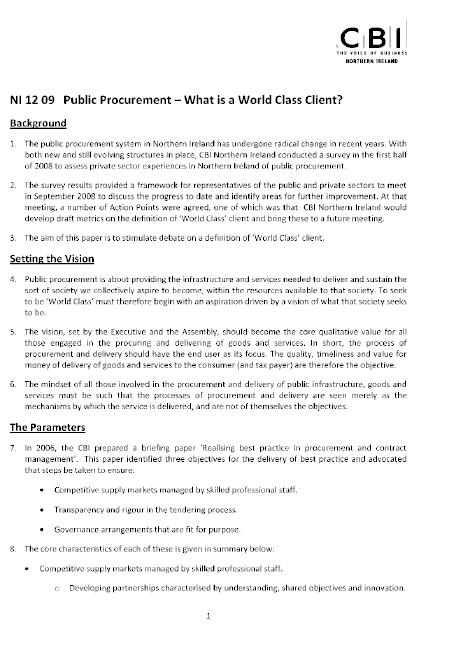


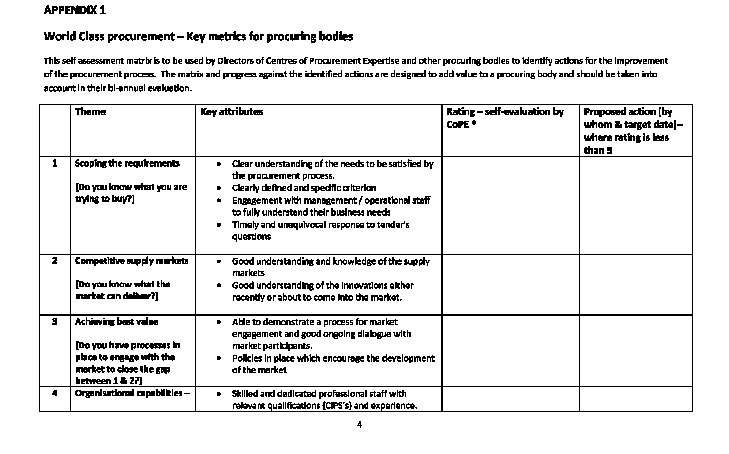



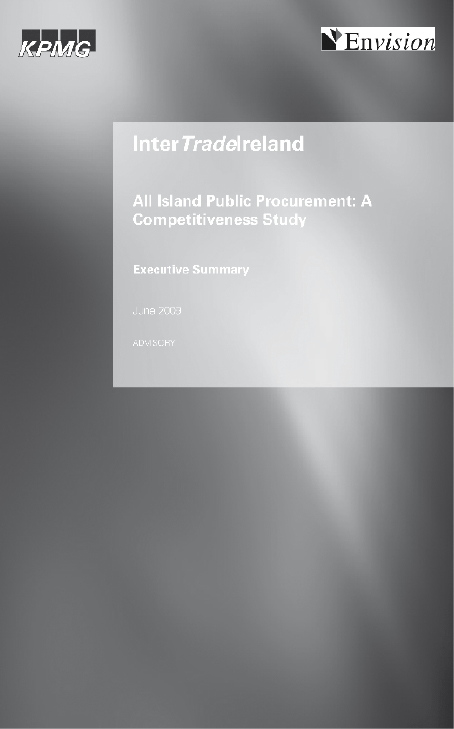
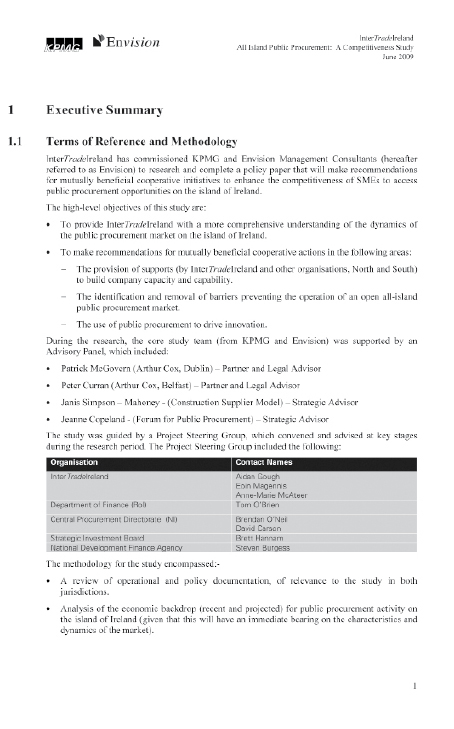
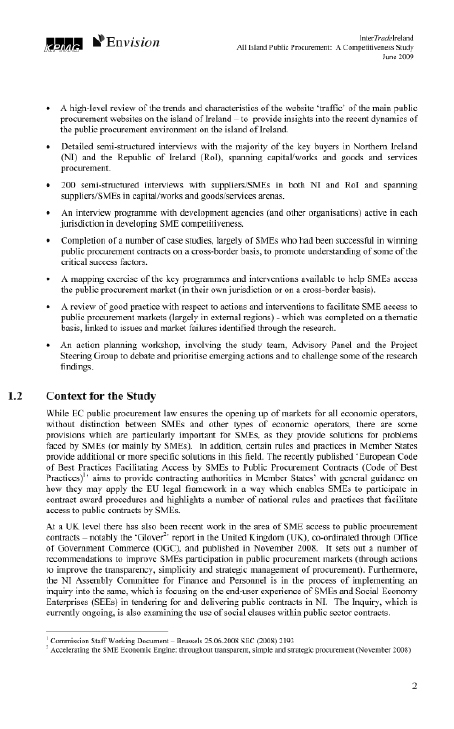
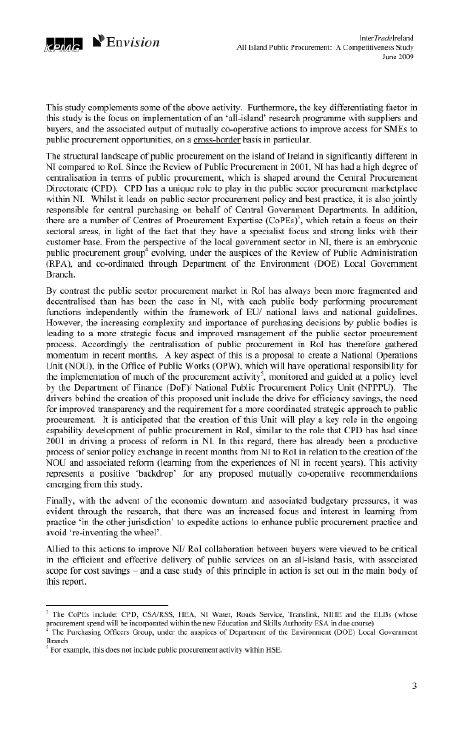
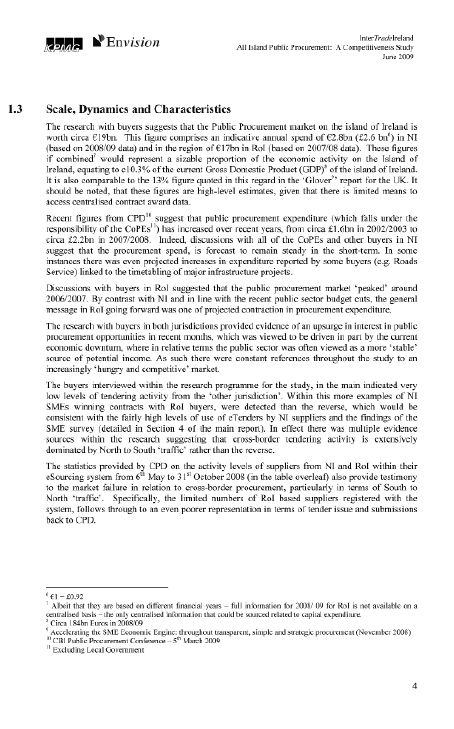
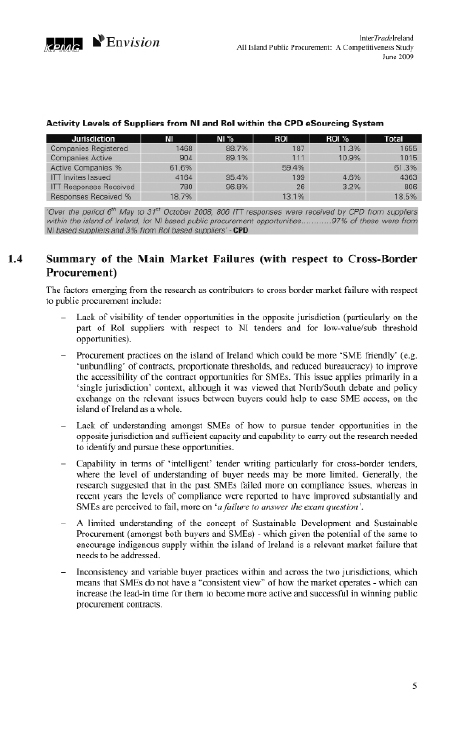
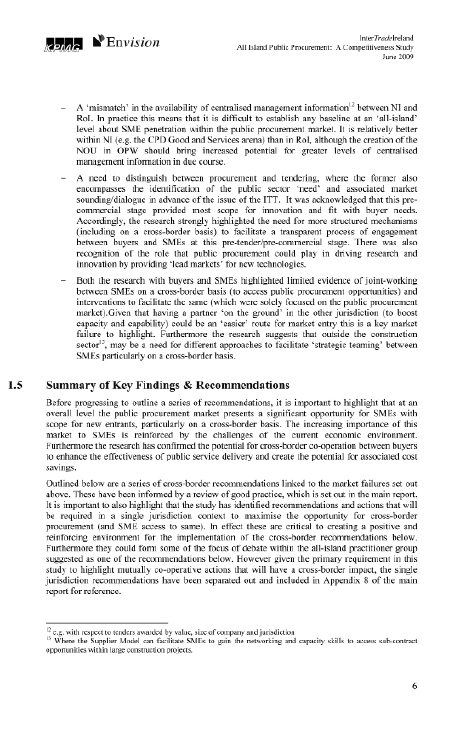
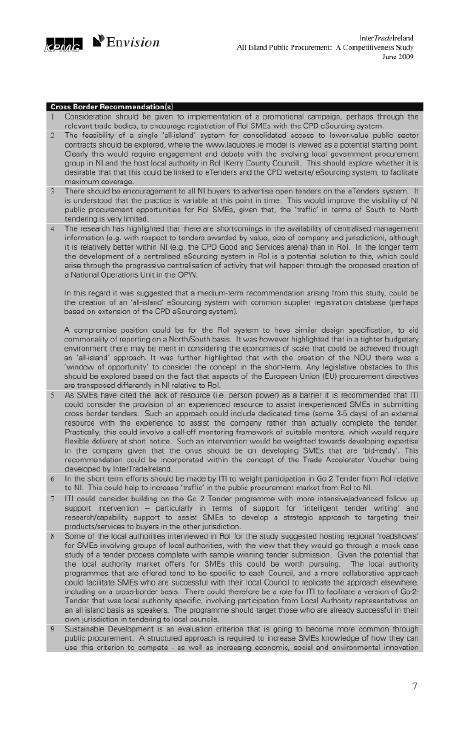
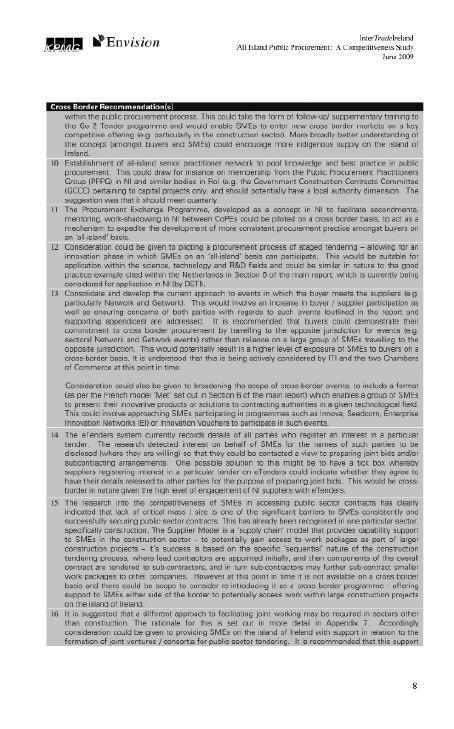
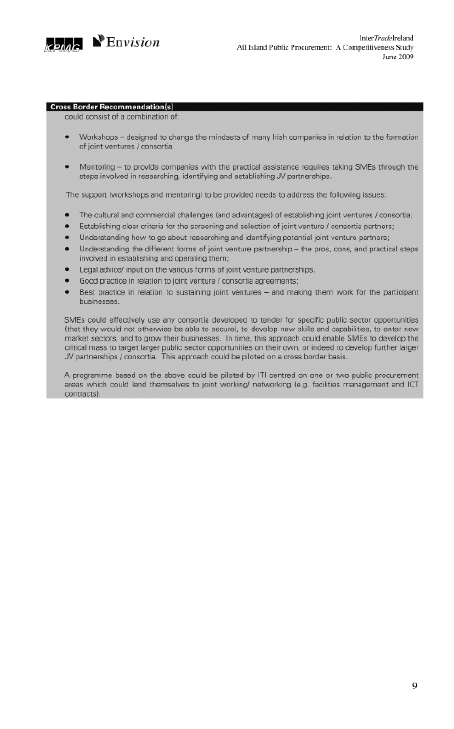
Ulster Community Investment Trust - Briefing Notes
12th June 2009
Shane McAteer
Committee Clerk
Room 419
Parliament Buildings
Stormont
Belfast
BT4 3XX
Dear Mr McAteer
With reference to your correspondence dated 14th May 2009, I enclose further information on the issues raised by the Committee for Finance and Personnel at our briefing on Wednesday 13th May 2009. The enclosed information includes:
1. details of the UCIT research into the barriers facing social economy enterprises in Northern Ireland in accessing finance;
2. a briefing note on the rationale for UCIT seeking regulation from the Financial Services Authority; and
3. a briefing note on the UCIT proposals regarding steps which the local banks could take to assist the social economy sector.
Due to ongoing discussions with a new partner organisation, I have omitted the draft terms of reference on the proposed “public procurement brokerage service until these discussions conclude. I anticipate that I will be in a position to forward this briefing note within the next 2 weeks.
If you or any of the Committee members require further clarification on any aspect of the enclosed briefing notes please do not hesitate to contact me or my colleague, Mark Dougan.
In the meantime, I would like to take this opportunity to thank you and the Committee for your continued support on these matters.
Yours sincerely

Brian Howe
Chief Executive
Briefing Note 1: Details of UCIT’s research into the barriers facing social economy enterprises in Northern Ireland in accessing finance
Introduction
Ulster Community Investment Trust (UCIT) was originally established in 1995 to provide flexible loan finance and business support to social enterprises who found it difficult to access finance from elsewhere.
Evidence of Demand for Finance
In recent years, UCIT has experienced a growing demand for loan finance from organisations that, prior to the financial crisis, found it less difficult to access credit facilities from the banking sector. As a result, we have seen our annual level of investment more than double to £3.6m in 2007, with a further increase of 6% to £3.8m in 2008.[1]
Barriers to Finance
To test the claim that social enterprises are experiencing difficulties in accessing finance from the banking sector, UCIT contacted 36 (52%) of our existing loan-holders and new applicant organisations at the beginning of June 2009.[2]
Of the 36 social enterprises contacted:
- 39% (14) indicated that they had come directly to UCIT for loan finance
- Of the remaining 22 respondent organisations that approached the banks for loan finance before opting to take a loan out with UCIT, 82% (18) indicated that they had experienced difficulties accessing bank finance. Of these respondent organisations:[3]
- 7 had been refused a loan or overdraft facility
- 10 felt that the banks had applied excessive interest rates and fees to new loan facilities
- 5 indicated that their bank had increased interest rates on existing loans and overdrafts
- 5 indicated that their assets were unacceptable as security for the banks
Where a respondent organisation specified which bank they had approached, one of the four main local banks was highlighted.[4]
Some of the comments made by respondent organisations include:
‘In business 20 years with no borrowing history; Bank refused overdraft facilities to support cashflow despite presenting letters of offer from Funders; Assets for security an issue and personal guarantees requested by bank.’
‘With Bank for 15 years and naturally went to them first. Became increasingly more difficult to deal with. High charges on the overdraft facility. Ended up having to guarantee the loan personally.’
‘Spoke to banks but they were not interested in community housing project and not interested as houses offered as security’
‘Spoke with banks but were refused because we were new customers and didn’t proceed with another bank because of lack of flexibility and higher rates.’
‘Did approach the banks, but the banks’ did not have the appetite to lend. Our organisation has a good credit history - Banks not lending.’
- The 18 respondent organisations which indicated that they had experienced difficulties accessing bank finance have collectively drawn-down or applied for £4m in loan finance from UCIT over the last two years. Without UCIT’s investment, which normally represents up to 20% of the total funds levered in by a social enterprise, some of these projects would almost certainly not have got off the ground with the potential loss of up to £20m in additional funding.
- Of the 36 respondent organisations which opted to take out a loan with UCIT:
- 53% (19) indicated that UCIT offered a more competitive interest rate and no fees on new loans in comparison to the banks (UCIT has traditionally worked on a margin of 1 – 2% over the Bank of England (BoE) base rate when striking a rate on new loans)
- 67% (24) indicated that UCIT offered more flexibility, including no early repayment charges, repayment holidays and the provision of loans unsecured
- 33% (12) indicated that they opted to take out a loan with UCIT because we shared a similar social ethos to their organisation in working to create wealth and jobs in more disadvantaged areas
Summary
The evidence outlined above has been collected from a small sample of (36) social enterprises in Northern Ireland. However, it clearly demonstrates that a sizable majority of UCIT’s existing clients and new applicant organisations have and are continuing to experience difficulties in accessing finance from the banking sector in Northern Ireland.
Briefing Note 2: Further information, including draft terms of reference, on the proposed ‘public procurement brokerage service’
Due to ongoing discussions with a new partner organisation, briefing note 2 has been omitted until these discussions conclude. UCIT anticipates that we will be in a position to forward this briefing note within the next 2 weeks.
Briefing Note 3: Rationale for UCIT seeking regulation from the Financial Services Authority
Introduction
UCIT is currently registered as an Industrial and Provident Society (IPS) in Northern Ireland with the Department of Enterprise, Trade and Investment (DETI).
The Financial Services Authority (FSA) does not regulate credit unions and Industrial and Provident Societies in Northern Ireland.
A recent enquiry by DETI into the role and potential of credit unions in Northern Ireland (February 2009) recommended that the regulation of the sector be undertaken by the FSA, in-line with the rest of the UK, while the registration function remains within DETI.
We understand that the Treasury will work with the Northern Ireland Executive to conduct a review of the legislative framework for credit unions and IPSs in Northern Ireland.
Rationale for FSA Regulation
UCIT is seeking FSA regulation as part of our aim to increase the supply of finance into the social economy in Northern Ireland.
In recent months, we have held very positive discussions with Wealth Management Companies that work with high-net-worth individuals, the Irish League of Credit Unions, Ulster Federation of Credit Unions and Northern Ireland Federation of Housing Associations on the possibility of borrowing funds from their members’ reserves to invest into the social economy.
Each movement has been very supportive of using UCIT as a social investment vehicle for two reasons. Firstly, their members would be keen to use part of their reserves to support social enterprises in their local communities, making their funds much more mission driven. Secondly, they do not have the expertise and experience of investing funds into social enterprises which UCIT has developed over the last 9 years.
The single, most important issue expressed during all of our discussions has been security. Like all investors, the Credit Union Movement and Local Housing Associations have a duty of care to exercise due diligence when investing their reserves. UCIT has a proven track record in managing public funds; a strong balance sheet and more than £15 million in assets; however, under current legislation we cannot apply for FSA regulation.
FSA regulation would give UCIT financial creditability and increase confidence among private investors, such as the banking sector, and investors in the social economy who otherwise would not be in a position to independently verify our financial systems and controls.
Recommendation
We would ask the Northern Ireland Assembly to lobby Central Government to extend FSA regulation to UCIT.
We understand that before UCIT can be in a position to apply for FSA regulation, we must first be included as a named IPS under the anticipated new legislation for credit unions in Northern Ireland. This new legislative framework would:
- Open the way for UCIT and credit unions to apply for FSA regulation and
- Enable credit unions to lend funds to Community Finance Organisations such as UCIT
- FSA regulation would give UCIT financial creditability with high-net-worth individuals and companies seeking investment opportunities in line with their corporate social responsibility agenda.
Briefing Note 4: UCIT’s proposals regarding steps which the local banks could take to assist the social economy sector
Future Funding
UCIT provides loan finance to social enterprises that often experience difficulties in accessing finance from elsewhere because of the perceived credit risk associated with their business model.
Over the next 10 years UCIT will require a minimum of £20m in new capital to meet the growing demand for loan finance from the social economy in Northern Ireland. This level of investment is needed to improve the availability of finance for commercially viable social enterprises that are well placed to expand their operations, create and retain jobs, deliver more public services, and ultimately reduce poverty and promote community cohesion.
Proposal – Banks Lend to UCIT to Support Social Economy
UCIT is seeking the support of the four main local banks, including: Ulster Bank; Northern Bank; Bank of Ireland; and First Trust Bank to lend UCIT £2 million per annum over 10 years to help increase the availability of loan finance to the social economy. The key features of our proposal are set out below:
- No risk to banks as UCIT would accept all liability for borrowed funds, which would be used to on-lend to the social economy. UCIT has nearly ten years experience in social lending and investing public funds, a strong balance sheet and more than £15 million in assets.
- A portion of the £2 million invested annually by the banks into UCIT for on-lending into the social economy would qualify for tax relief up to 5% per annum over 5 years.[5]
- To ensure that this capital remains affordable for borrowers in the social economy, a subsidised rate would have to be applied to the banks’ loan to UCIT. This is critical, because charging the full cost of funds would result in an unacceptable price for social enterprises borrowing from UCIT.
We estimate that if each of the four local banks invests £500,000 per annum, they would incur a small cost which is likely to be off-set by tax relief provided to the banks under the Community Investment Tax Relief scheme.
UCIT would on-lend funds to social enterprises at BoE base rate + up to 2% (or a minimum base rate of 3% + up to 2% when the BoE is lower)
UCIT would agree to repay the original capital and interest on a monthly basis over a term of 10 years with no risk of default. Any defaults by social enterprises are a matter for UCIT.
By applying a subsidised rate, UCIT is trying to strike a balance between the needs of:
- UCIT – which needs to make funds available at affordable rates and generate income to cover incremental costs and bad debts
- Banks – who can provide funds to discharge their Corporate Social Responsibility at a subsidised but reasonable rate
- Social Enterprise Borrowers – who require access to finance at affordable rates
Benefits to Local Banking Sector
By lending to UCIT to support the social economy, local banks would:
- Support the Northern Ireland Executive’s work with UCIT to help grow the social economy – generating goodwill
- Make social finance more readily available to borrowers without the need for banks to take on any risk
- Enhance their Corporate Social Responsibility. As part of UCIT’s communications strategy we would brand bank funds to demonstrate their support for social enterprises in local communities across Northern Ireland
- Mitigate further calls for ‘gift’ funding from the sector
Evidence of Similar Schemes
Republic of Ireland
In February 2007, the Irish Government announced the establishment of an independent Social Finance Foundation (SFF) with €25m in seed funding secured from the Irish banking sector. SFF acts as a wholesale supplier of investment finance for on-lending by 5 accredited social finance providers, including UCIT (Ireland).
Launching the initiative, the former Minister for Finance, Brian Cowan acknowledged that social enterprises ‘have the potential to yield significant economic and social returns but often experience difficulties in accessing finance from mainstream financial institutions’.
In March 2008, the Social Finance Foundation reached agreement with the banking sector to borrow an additional €6 million per annum over the next 12 years at a subsidised rate. As a result, the Irish banking sector will use SFF to invest €97 million (approx. £88 million) into the social economy in the Republic of Ireland over the next 12 years.
United States
The Community Reinvestment Act (CRA) was introduced in 1977 to compel banks to provide financial services in so-called ‘red-lined’ disadvantaged communities, where they previously refused to lend. The Act has encouraged banks to partner with intermediaries such as Community Development Finance Institutions (CDFIs) who offer financial services in these communities.
Banks’ support of the US CDFI sector was cemented following a 1995 amendment to the Act which made investing in a CDFI an accredited activity.[6]
UK
In the UK, it was originally envisaged that the banking sector would be a natural ally of CDFIs in terms of funding, investment and referrals. Much progress has been made and a number of banks work very closely with the sector. However, partnerships can be developed further, building on the concept of the US Community Reinvestment Act.
UCIT fully supports the Community Development Finance Association (CDFA) intention to work with representatives from the banking sector, the Department of Business, Enterprise and Regulatory Reform and the Treasury to form a ‘Partnership Group’ that will formally agree a ‘Community Finance Charter’ by the end of 2009 to ensure greater cooperation in the provision of finances to under-served communities.
Next Steps
There is an urgency to reach agreement with the four main local banks to ensure that a minimum of £20m in new capital is made available to meet the demand for loan finance from the social economy in Northern Ireland over the next 10 years.
- UCIT has written to the four main local banks to request an opportunity to meet and discuss our proposal
- If the banks agree to our proposal, we will need to get a common loan agreement signed off by all of the banks
- UCIT would be keen to begin drawing down on funds in January 2010 at the latest
[1] In the wider UK context, members of the Community Development Finance Association (CDFA) reported an increase of 59% in social investment to £287m at the end of March 2007, up from £181m on the previous year. Inside Out 2007 – The State of Community Development Finance. 61 CDFIs participated in the survey which was carried out by the CDFA between March and September 2007. At the time of writing no figures were available tor 2008.
[2] UCIT carried out a telephone based survey using a semi-structured questionnaire on 4th and 5th June 2009. All of the social enterprises surveyed included those that took out a loan with UCIT during 2007, 2008 or 2009, and those organisations currently in the process of applying to UCIT for loan finance.
[3] Some respondent organisations specified more than one difficulty in accessing finance from the Banks, hence the higher number of reasons listed in comparison to the 18 organisations that had experienced difficulties.
[4] The four main local banks include Ulster Bank; Bank of Ireland; First Trust and the Northern Bank.
[5] As a Community Development Finance Institution, UCIT qualifies to apply to the Government to become accredited under the Community Investment Tax Relief scheme (CITR), which provides tax relief for UK private investors that invest into CDFI’s such as UCIT, who then on-lend into the social economy.
[6] Ulster Community Investment Trust (UCIT) is a Community Development Finance Institution (CDFI) in Northern Ireland, and part of the UK wide CDFA (Association) which works closely with Government.
CBI-NI 09a 09 Supplementary evidence to Finance Committee on Public Procurement
NI 09a 09
CBI supplementary evidence to the Finance and Personnel Committee’s Inquiry into Public Procurement
CBI Northern Ireland welcomes the opportunity to provide additional evidence to the Committee on the issues of Extension of Contracts and the difficulties faced by businesses in accessing finance.
Extension of contracts
The issue of extension of contracts has not been a major policy discussion within the CBI membership. However we have consulted our members and wish to make the following observations and comments. There can clearly be both positive and negative aspects to extending contracts:
Positive features
- No re-tendering can save time and costs for both client and contractor
- Existing contractor should know the ‘job’ and should be more efficient and faster as the contractor becomes familiar with the contract (assuming they are doing a good job)
- From a client perspective it provides continuity of service
- Response times should be quicker
- There should be benefit in retaining the knowledge and earned expertise of the existing contractor
Negative features
- uncompetitive resulting in higher costs
- lack of knowledge of market improvements and service provision improvements
- lack of competition can mean a reduction in efficiency
- comfortable relationships can develop
- makes it more difficult for other suppliers to forecast when new contracts will be put out to the market (with implications for strategic planning, resourcing and budgeting)
- the client often assumes an extension will be cheaper on the basis of capital costs will already have been recovered
There is overall agreement that the driving force behind the decision should be achieving best value for money. This will require high quality contract management of the existing contract with clear Key Performance Indices. It will also involve a good understanding of the existing market place so that the client can assess whether there are likely to be opportunities to achieve greater value from money from putting the contract out to tender again (despite the additional costs of the tendering process), or whether to extend the existing contract.
We note that the Office of Government Commerce has recently published guidance on when existing contracts should be renewed – see Box 1 below.
Box 1 – OGC guidance regarding contract extensions
An extension of the existing contract is only to be recommended when:
- There was scope within the original advertisement in the OJEU (of the current contract) for a possible extension to the length of time or value)
- The existing supplier is performing well;
- The existing supplier is also well placed to deliver your needs, which are defined as a result of the strategic assessment set out above;
- The supplier in question is not over-dependant on your department or government more widely
- The market in question remains competitive. If there are few suppliers in a market place and you extend an existing large contract, competitiveness may be reduced. By extending a contract you are effectively excluding other suppliers, and one or more of them might quit the market as a result
Other issues raised by CBI members include:
- too often contracts are extended too close to the expiry date of the original contract term, indicating a lack of planning on the part of the procuring organisation
- many contracts will have specific terms regarding the extension process, often mandating that the client must serve notice to the contractor by a given date of its decision as to whether or not it will extend the contract term – this is not always achieved by the client
- there are examples of the private sector having to work at risk on the promise of extended contract periods (with contracts not formally agreed prior to the extension taking place) in order to ensure continuity of service
As with all aspects of public procurement best practice should apply:
- there should be more transparency of the benchmarking process to determine whether a contract should be extended eg this process should provide an objective assessment of 1) the existing contract and whether it has delivered against the original tender criteria and 2) whether value for money is likely to be achieved by contract extension
- complex contracts with a period of 3 years or more should normally include a notice period of at least 6-9 months to agree the terms of the contract extension and any extension should be agreed at least 3-6 months prior to the expiry of the initial contract term
CBI members remain strongly supportive of framework agreements, and welcome the recently completed Construction Industry Forum NI ‘Procurement Task Group Report’ published on 30 April 2009 with regards how frameworks should be taken forward in the future. With regards to frameworks:
- Projects will be delivered more quickly - frameworks are the only efficient means of delivering large numbers of projects within a reasonable timeframe
- There are efficiencies in the administration costs of both client and contractor
- Lessons learnt on earlier jobs are implemented on the next job
- Contractor led frameworks control design creep and manage design within budget - traditional one-off procurement fails abysmally on this score
- Client, contractor and supply chain alike benefit from collaborative, open and transparent working arrangements, driving efficiencies and cost certainty into projects. Lifecycle replacement and maintenance costs are factored into delivering best value for money into the scheme, rather than simply targeting cheaper initial build cost
- End users are included in the key decision making, delivering facilities that are more fit for purpose and user friendly
- Frameworks facilitate social inclusion, creating training and apprentice opportunities
- Frameworks facilitate more sustainable construction and balancing of objectives (cost benefit analysis)
- Statistical evidence supports the view that long term frameworks result in higher quality design, better quality construction, more economically maintained facilities and also fewer on-site accidents during construction, at greater cost certainty.
Difficulties faced by business in accessing finance
As stated at the Committee assessing the current difficulties and problems faced by businesses in a qualitative manner is extremely difficult.
Credit conditions remain extremely tight, albeit that the latest national CBI ‘Access to Finance’ survey published earlier this month reveals some marginal improvement in credit conditions. The key findings are:
- Shortage of trade credit insurance remains a worry
- Access to finance remains a serious problem for businesses, but the rate of deterioration in credit conditions slowed further over the past three months, and conditions are expected to stabilise in the months ahead
- Businesses were less negative than they were in March about the supply of new and existing credit
- The easing of conditions for new credit supply is expected to continue. Only a net 7% of firms see a further fall in new credit supply over the next three months. Meanwhile, no further worsening is anticipated for existing credit supply. 10% of firms expect the situation to improve, and another 10% expect it to deteriorate, giving a balance of zero per cent, which indicates that conditions for existing credit will be stabilising.
The most recent survey on credit conditions in Northern Ireland are reflected in an IoD survey on lending conditions published in May 2009 which revealed:
- 93% of businesses had been able to renew their existing bank loan, though only 63% of respondents were able to extend an existing bank loan
- 80% were able to renew an existing overdraft facility – though over 50% of requests for new overdrafts or extensions were being declined
Our overall view of the credit situation is summarised as follows;
- credit conditions remain extremely tight, though we expect the position to stabilise. Finance is being rationed (at a UK/international level) while the costs of finance have risen despite the fall in base rates – banks are seeking to move customers to Libor plus (from Base rate plus)
- on the demand side, investment intentions are very weak (which will impact on the economic recovery which CBI expects to come through early in 2010 albeit rather weak), the risks have increased substantially in certain sectors (though clearly less so in the public sector market
- working capital demands have increased, and while companies are seeking to reduce working capital requirements, this is an area where accessing finance is particularly difficult and expensive
- companies are finding that it is taking more time/resource to access finance (with more robust credit assessments) while in some cases greater personal commitments/guarantees are being sought
- with base rates at 0.5% financial institutions are losing money on deposits, hence they are seeking to recover such losses from their lending side of the business
There is emerging evidence that there is margin erosion with regards public sector contracts. This is driven by competitive forces including new market entrants and in the current economic environment by over-capacity in the supply market.
In the Republic of Ireland there is currently significant evidence of contractors ‘buying work’ and a concern that this situation may extend to Northern Ireland. If such a situation was to develop in Northern Ireland, where the cheapest tender is scored highest, this will over time drive margins down to the point that quality of service will suffer and put jobs at risk of those organisations who have invested in skills and capabilities.
However with regard to businesses which have significant levels of public service contracts, we would make the following comments:
- such businesses, provided their contracts are profitable and the company has the capability to deliver the contract, should be attractive clients for the financial institutions with the public sector offering a secure customer base with no risk of bad debt – many other companies have a significant problem accessing trade credit insurance
- most, but not all, companies experience of government payment periods is good though delays are often incurred in verifying expenditure – clearly prompt payment is extremely important for helping reduce working capital requirements
CBI’s public procurement survey undertaken in 2008 reveals that companies dependence on public sector work varies considerable:
- 35% of respondents have less than 5% of turnover generated from public procurement
- 24% have 5-25% of their turnover from public procurement
- 20% have 25-60% of their turnover from public procurement
- 18% have over 60% of their turnover from public procurement
- 3% don’t know
While credit conditions remain difficult and the general economic environment remains very tough, most companies have been responding quickly to the situation, and the number of companies going ‘out of business’ remains at fairly low levels. As we have suggested above companies with public sector contracts are in a better position (due to their ‘blue chip client’) than many other companies who have to carefully manage the risk of bad debts.
The credit market difficulties have also made securing of finance for PFI/PPP contracts more difficult, but not impossible. There has been a spate of contract closure across the UK in recent months, including the southwest hospital project in County Tyrone. Some financial institutions have been reluctant to provide funding for more than 3 years.
CBI Northern Ireland
12 June 2009
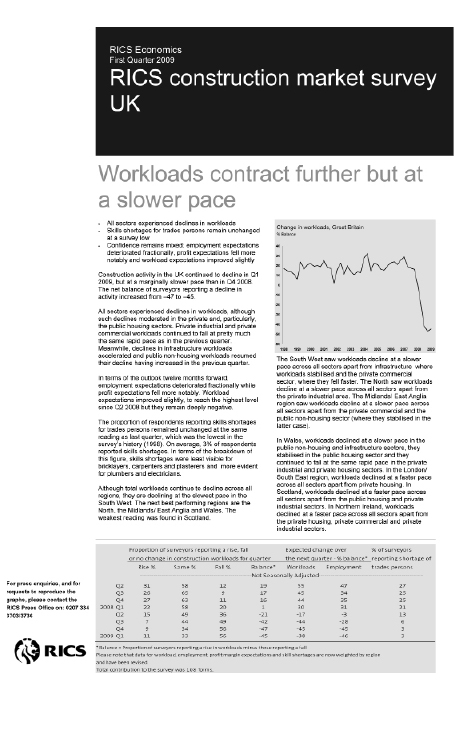
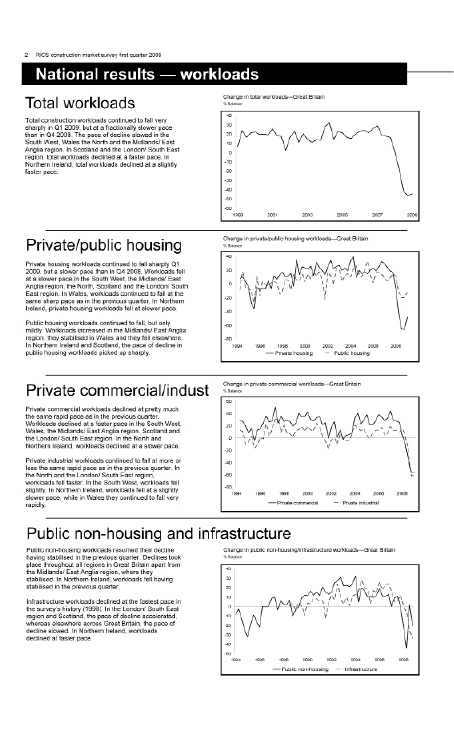
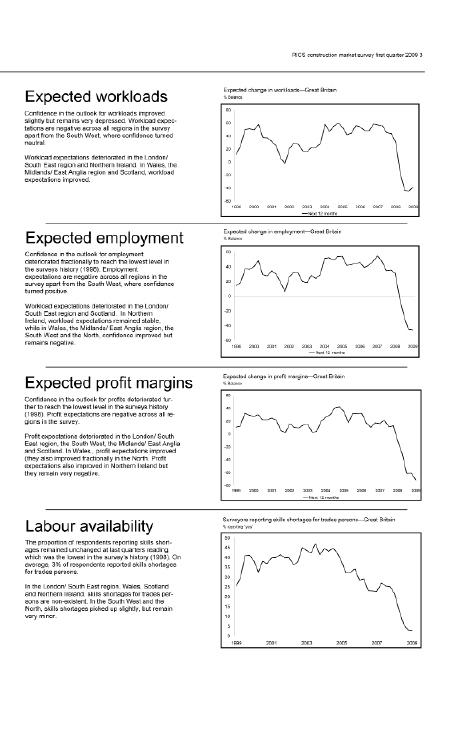
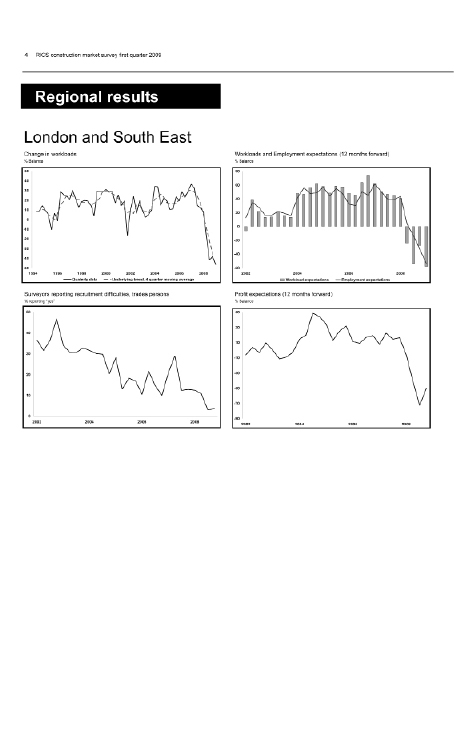


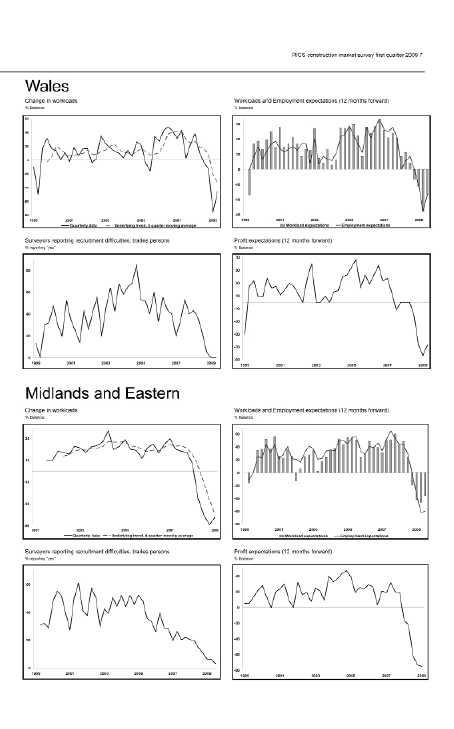




Ulster Community Investment Trust - Public Procurement Brokerage Service Briefing Note
The Need for a Public Procurement Brokerage Service
There are three reasons to help social enterprises win public service contracts:
1. There are an estimated 1,200 social enterprises, employing over 20,000 people in Northern Ireland. By improving access to region’s estimated £2 billion public procurement market, social enterprises will be better placed to offer effective competition to the private sector, expand their services and create new employment opportunities in, for example, health and social care.
2. Social enterprises have a strong sense of community ownership, being managed by local people for local people. This makes them a highly effective partner for delivering public services to some of the most vulnerable sections of society.
3. A public procurement process that recognises the importance of delivering social value will help establish a level playing field for social enterprises that work in communities that are often underserved by the private sector.
Terms of Reference
A public procurement brokerage service would help like-minded social enterprises come together to win public service contracts. The key objectives would be to:
- Build the business capacity of social enterprises and their readiness for public procurement
- Facilitate business links and strategic alliances between social enterprises working in, for example, education and training, health and social care, and with the private sector. This will help build the sectors’ collective business strength and ability to tender for public service contracts
- Link with Central Procurement Directorate (CPD) ‘Meet the Buyer’ events and advice sessions on the tendering process
- Segment the public procurement marketplace and source new procurement opportunities on behalf of social enterprises
- Assist social enterprises with writing proposals for public service contracts. The public procurement brokerage service will establish a pool of expertise and resources associated with tendering for contracts – such as bid writing, financial modelling, contract negotiation and performance management
The brokerage service would be managed by a Committee made up of four organisations:
UCIT – financing social enterprises and providing capital for administering the brokerage service
Social Economy Network – facilitating business links and identifying new tender opportunities
School for Social Entrepreneurs in Ireland – Building the sectors’ business capacity and skills base
Bryson Charitable Group – Providing specific expertise in winning public procurement contracts
The public procurement brokerage service would be wholly sustainable by way of funds gifted by UCIT. This would involve UCIT securing approximately £10 million from the Dormant Bank and Building Society Accounts scheme for lending into the social economy in Northern Ireland. Part of the income generated by interest repayments would then be used to fund the brokerage service at no additional cost to public finances.
Diagram 1 illustrates how unclaimed funds from the Dormant Bank and Building Society Accounts scheme would be continuously re-invested by UCIT to generate revenue for administrating the public procurement brokerage service.
Diagram 1
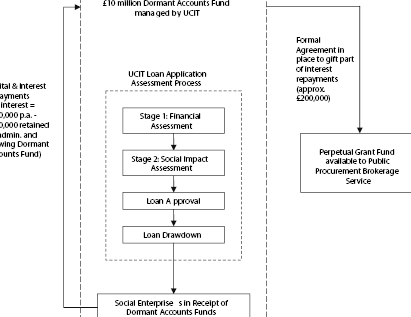
For evidence of regional support for assisting social enterprises to win public service contracts see appendix 1.
Appendix 1: Evidence of regional support for social enterprise & public service provision
Establishment of a public procurement brokerage service
In April 2008, Futurebuilders England launch a new online match-making service for third sector organisations considering working together through merger, collaboration, or forming consortia to deliver public services in England.
Government investment into social enterprises and public service provision in the regions
The English, Scottish and Welsh Executives have all acknowledged the need to build the capacity of social enterprises to enable them to successfully bid for and deliver public services. There are two key elements to this strategy which are consistent across each region:
- Access to investment capital
- Provision of business support
Each region’s strategy to build the capacity of social enterprises to successfully bid for public service contracts is briefly outlined below:
England
The Office for the Third Sector (OTS), as part of the Cabinet Office, has acknowledged the need to build the capacity of social enterprises to help improve public service delivery.
There are two key strands to this approach:
Access to Finance – In May 2004, the Government invested £150m in Futurebuilders England Ltd. A further £65m was invested into the Fund in April 2008. Futurebuilders is currently delivered by Adventure Capital Fund and provides a mixture of loans and grants to social enterprises looking to deliver public services.
Business Support – Over a 3 year period (2008 – 2011), The Office of the Third Sector will invest £88.5m into Capacitybuilders to improve the business capacity of the Third Sector (similar to Invest NI’s Social Entrepreneurship Programme).
Example: Healthcare Provision by social enterprises in England – The Department of Health’s £100m Social Enterprise Investment Fund, which will be managed by Futurebuilders England over the next 3 years to 2011, will provide a mixture of grants and loans to existing health and social care social enterprises in England to scale up their operations and readiness for public procurement.
Care Services Minister, Phil Hope, highlights the fact that social enterprises share the same public sector ethos as the NHS in that they re-invest surpluses into services and the community (Social Enterprise, Issue 76, April 09).
Health and social care services are widely recognised as the quickest growing sector for social enterprise in England.
Scotland
The Scottish Executive has also recognised the importance of building the capacity of social enterprises to successfully bid for public service contracts.
The Executive aims to achieve this in two ways:
Access to Finance – In June 2008, the Scottish Executive appointed Social Investment Scotland (similar social finance investor to UCIT) to manage a new £30m Scottish Investment Fund. The fund will initially provide a mixture of loan and grant finance to social enterprises over a 3 year period (2008 – 2011).
Strategic Support – The Executive’s strategy for social enterprise acknowledges the contribution that the sector can make to supporting public service reform, particularly in local communities. To improve the sectors’ chances of winning public service contracts, the Strategy aims to encourage better co-operation between well established enterprises and newer organisations with limited track records, and ensure that the sector gets access to effective business support.
(UCIT’s proposal to establish a public procurement brokerage service for social enterprises would enable the NI Executive to achieve this aim at no additional cost to public finances).
Wales
A key aim for the Welsh Executive is to improve the opportunities social enterprises have to win business from the public and private sectors.
Access to Finance – Part of the Welsh Social Enterprise Action Plan makes provision for a new £8m Community Asset Transfer Fund to help social enterprises renovate public buildings to offer services to the community.
Business Support – In November 2008, the Welsh Executive announced a £7.1m Social Enterprise Support Project to be delivered by the Wales Cooperative Centre. The Funding will be used to develop the sustainability of 200 organisations over 5 years through a combination of advice and support for pre-start social enterprises and raising awareness of the sector’s contribution to the economy.
Correspondence from Committee for Employment & Learning
Committee for Employment and Learning
Room 245
Parliament Buildings
Tel: +44 (0)28 9052 0379
Fax: +44 (0)28 9052 1433
To: Shane McAteer
Clerk to the Committee for Finance and Personnel
From: Peter Hall
Clerk to the Employment and Learning Committee
Date: 30th June 2009
Subject: Committee Report on the Way Forward for Apprenticeships
Dear Shane,
As you will be aware the Committee for Employment and Learning produced its report on the Way Forward for Apprenticeships on 17th June. The Assembly debated the report on Monday 22nd June.
One of the recommendations contained in the report details the Committee’s view that a quota of apprentices needs to be incorporated into the workforce assigned to public procurement contracts. Paragraphs 95 and 96 of the report provide the rationale for the Committee making this recommendation.
The recommendation and paragraphs mentioned above are attached, as is a copy of the Committee’s report, and I would ask that you bring this to the attention of the Finance and Personnel Committee, given the Committee’s ongoing scrutiny of public procurement practice in Northern Ireland.
Regards
![]()
Peter Hall
Committee Clerk
Recommendation 6
The Committee urges the Minister to seek the support of his Executive colleagues in establishing in legislation that an appropriate quota of apprentices should be involved in the workforce undertaking any public procurement contract. It is also important to ensure that these apprentices remain employed with the contractor beyond the period of the contract.
Public Procurement Contract Apprentice Quotas
95. The Committee has been very active in the promotion of an agreed quota of apprentices being a key prerequisite to the award of any public procurement contract. The Committee has written to all Executive Ministers highlighting the need for a proportion of the workforce involved in public procurement contract to be apprentices. In that correspondence the Committee’s focus was construction apprentices and the possibility of quotas for this group in any department’s capital expenditure programme. At that point the Committee was aware that construction apprentices formed the largest proportion of redundant apprentices. The Committee is keen that the issues of apprentice quotas for public contracts be widened out to encompass all public procurement contracts.
96. The Committee has urged that public contracts under the Investment Strategy of Northern Ireland (ISNI) should contain a provision that a specific quota of apprentices must be employed. The Committee understands that such a system along these lines already operates in Scotland. The Committee is also aware that the Procurement Practitioners’ Group, including representatives from the NICS Centres of Procurement Expertise with responsibility for construction procurement, agreed to accept the local Construction Industry Forum’s (CIF(NI)) proposals in September 2008. However, these proposals would only provide for one apprentice per £2M of each contract and are limited to construction procurement. The Committee commends the Minister on his actions thus far on apprentices being represented as a quota of the workforce involved in public procurement contracts.
RICS Response to Design & Build Query
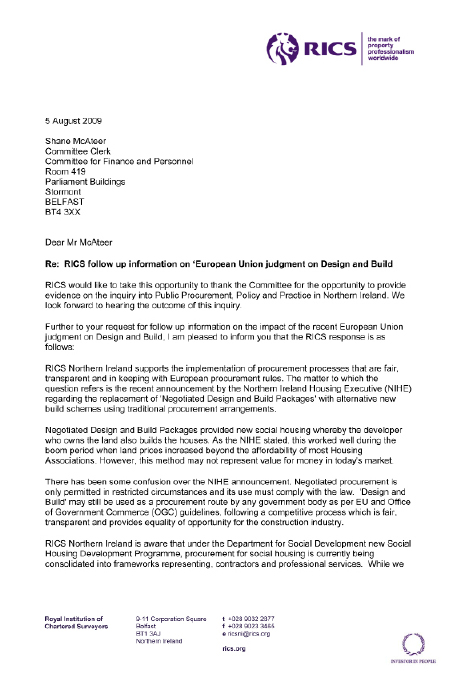

FMS (NI) - Procurement Concerns and Issues
From: Sam Gaw
Sent: Tuesday, August 18, 2009 5:18 PM
Subject: Government Procurement
Dear MLA’s,
I am writing to each and every one of you in a hope that someone can put their hand up and say “I can help", as I have listened with great interest while many of you have stated your support for small local businesses on programs such as radio Ulster’s Nolan and Talk Back. Let me explain, myself and my business partner have what could be described as a very unique business. We are the only Northern Ireland Company that builds computers here in Northern Ireland to be included within the DFP / CPD framework agreement for the supply of computer hardware and supplies to NI Government. Great you might think, a local company building computers that can then be used within local government, creating local skilled jobs and keeping their earnings within the local economy.
However the truth of the matter is far from this scenario, even though the computers we build are to the exact or higher specifications required by each department and on many occasions much cheaper, we have been told by what could be described as two senior civil servants that the notion of purchasing from small local companies such as ours gets no more than lip service. In fact one of these civil servants at a meeting with CPD stated that it wouldn’t matter how good or how cheap our products were he wouldn’t purchase any of them. He went on to state that we should take his advice and become a reseller or sub contractor for one of the multi nationals. A recent example of departments choosing big name brands is the Probation Board. They have confirmed to us that the last two rounds of procurement for computers we have been the cheapest but because we don’t carry a big name brand on our computers they have chosen the more expensive option offered.
We have no intention of becoming what is termed in our industry as a “box shifter"; we have far to much pride in the products we produce, which is why Intel have given us two international awards and for the past nine years invited us to be a part of their Premier Partner program, the only company in Ireland to receive this invitation.
Surely it is you as a Member of the Legislative Assembly that set policy for civil servants to carry out, and not for them to pick and choose which policies they like and dislike? There has to be at least one MLA that can ensure proper guidance is given on how civil servants treat small local companies when it comes to procurement?
As it stands we are at a loss as to what we can do to turn around this mind set within the civil service; however I’m sure that with the assistance of MLA’s this can happen. We would be most grateful if you could take a little time out to reply with your ideas or suggestions on the way forward. We are more than willing to meet with any of you and try to formulate a plan of action that would benefit not only us but all the other small businesses in Northern Ireland.
Yours Truly
Sam Gaw
FMS (NI) Ltd
Unit 19 Annesborough Ind. Est
Lurgan
Co. Armagh
BT67 9JD
Tel: 02838345118
Ministerial Advisory Group Correspondence
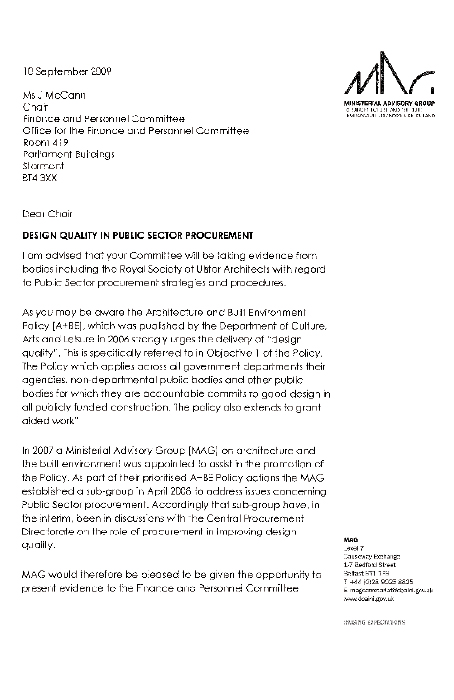
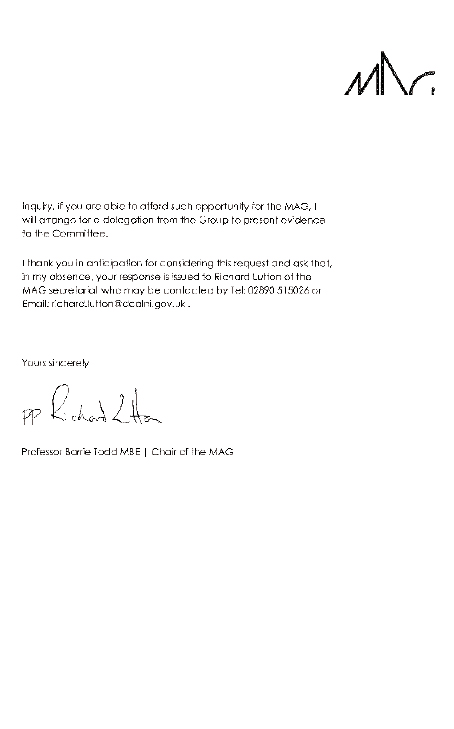
Ministerial Advisory Group: Correspondence
Dear Mr McAteer,
Thank you for your email [sent to Richard Lutton in my absence] in response to my letter to Ms J McCann of the 10th Sept re. above.
You have asked how the Ministerial Advisory Group’s [MAG] interests relate to the inquiry terms of reference. [TOR]
One of the main duties of The Ministerial Advisory Group is to monitor the implementation of the terms of the Architecture and Built Environment Policy which, as explained in my 10 September letter, is a Government Policy.
The MAG set up a sub-group to examine implementation with regard to Public Sector Procurement [PSP] procedures.
It discovered that a distinct lack of application was contained in those procedures and guidelines.
In particular little or no reference or intent is displayed in terms of requiring a delivery of design quality under the main guiding principles of the A+BE Policy ie
1. Creativity and Innovation
2. Heritage
3. Sustainable Development
It is considered therefore that the current PSP procedures and guidelines do not fully address in particular [but not necessarily exclusively] the TOR which require an examination of “maximising the economic and social benefits for the local community"
The MAG would therefore be obliged if our views findings and recommendations could be presented to the Committee for Finance and Personnel.
I look forward to your response.
Yours sincerely,
Professor Barrie Todd MBE | Chair MAG
Unite Union
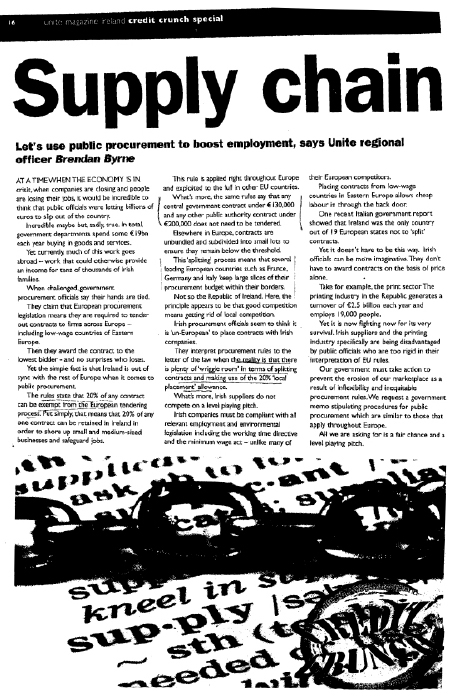
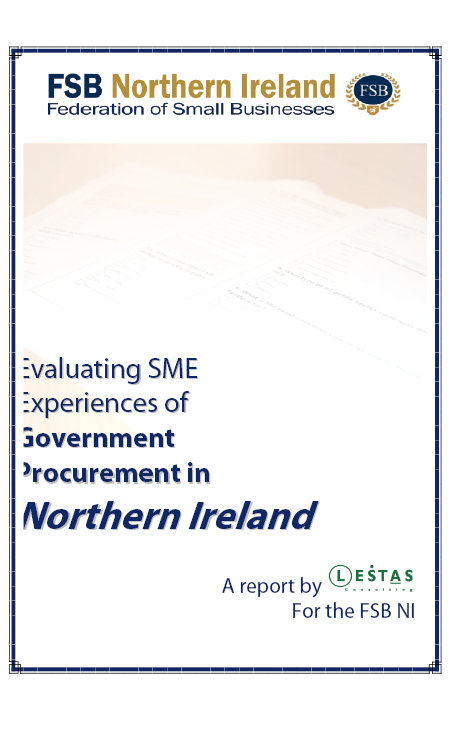
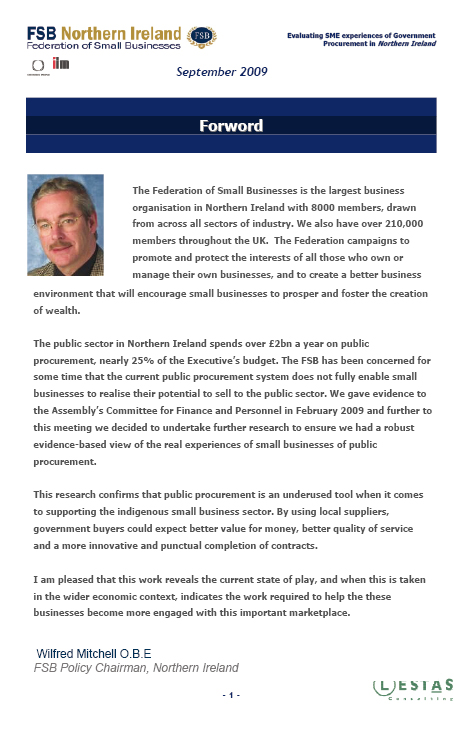
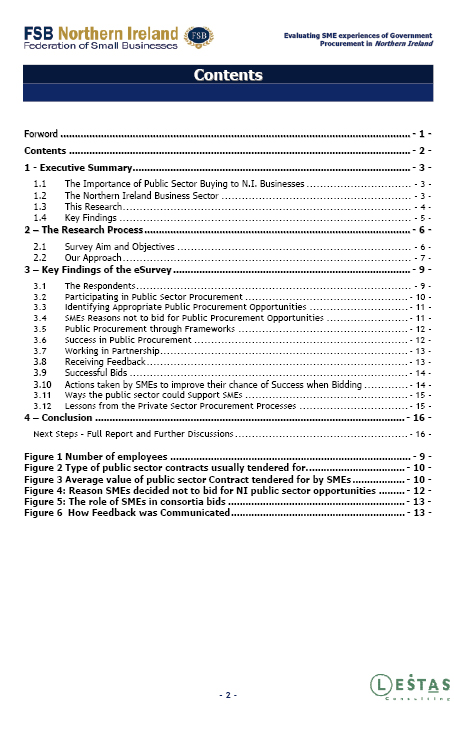
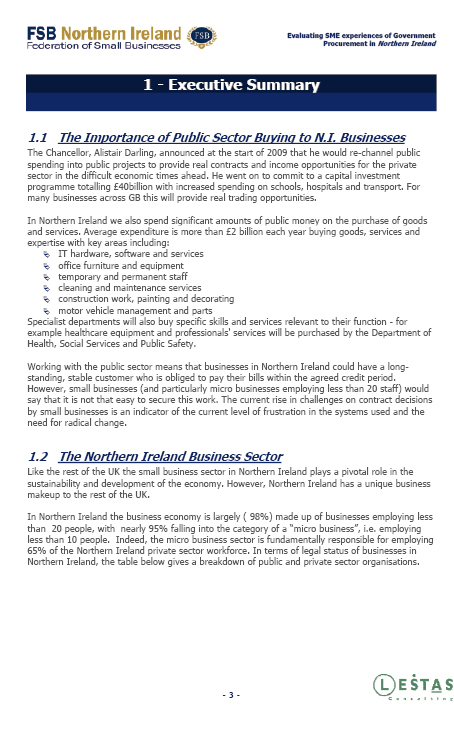
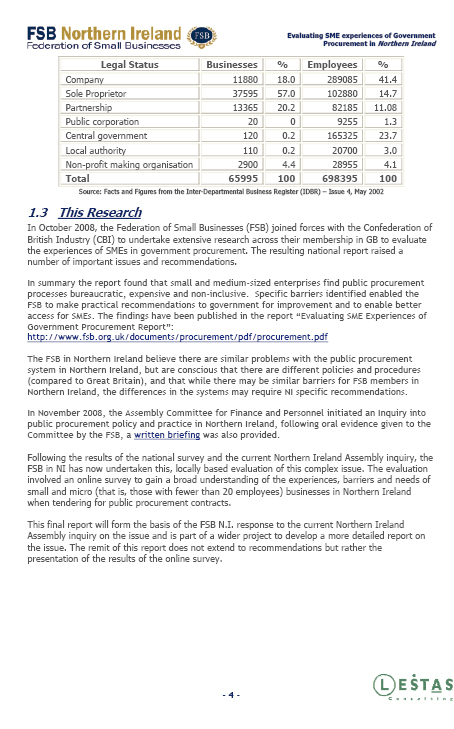
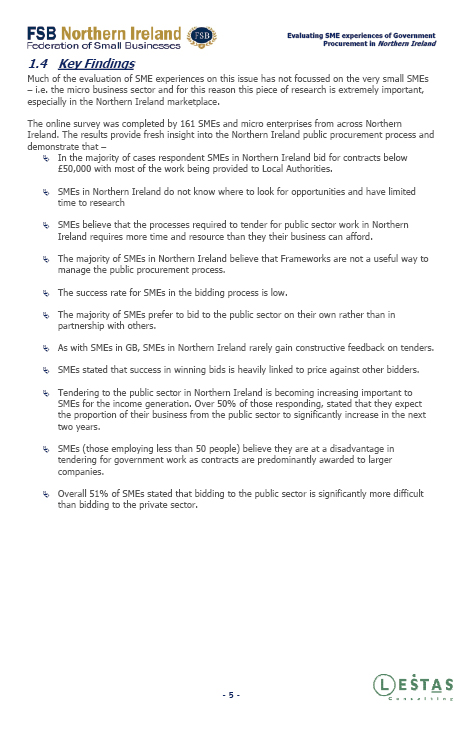
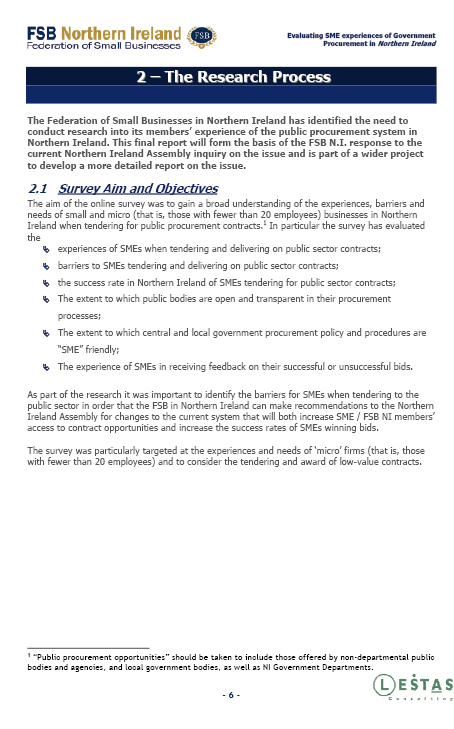
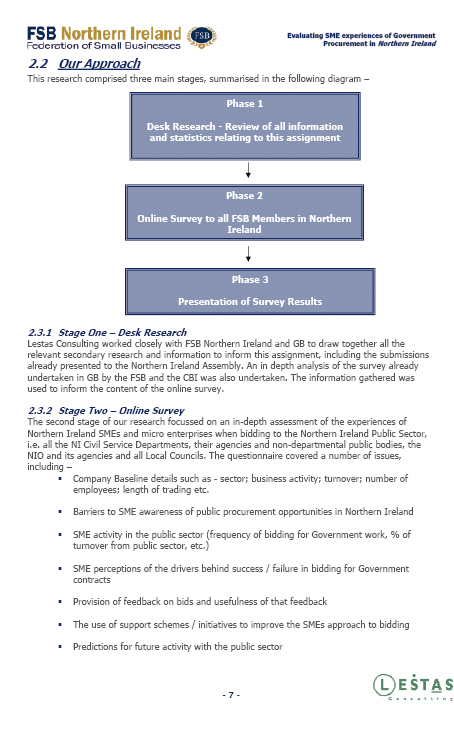

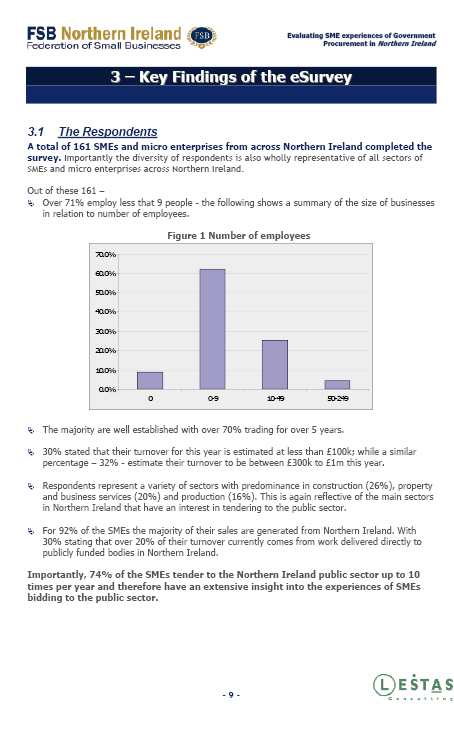
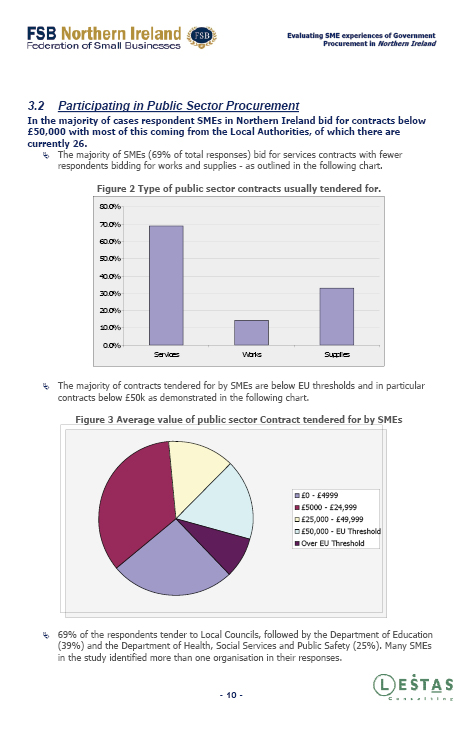
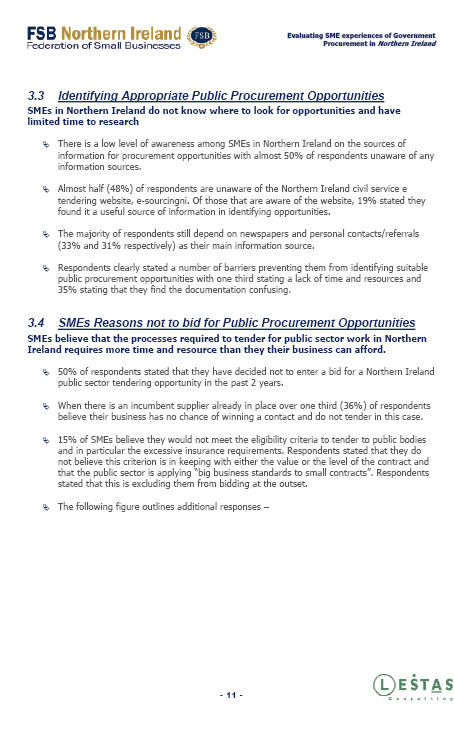
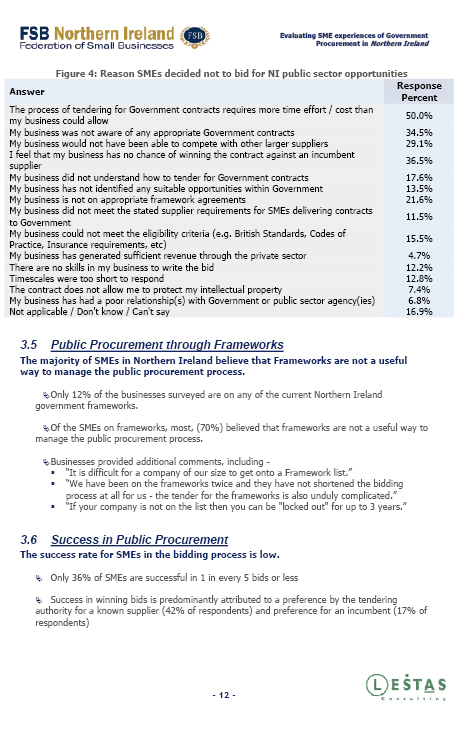
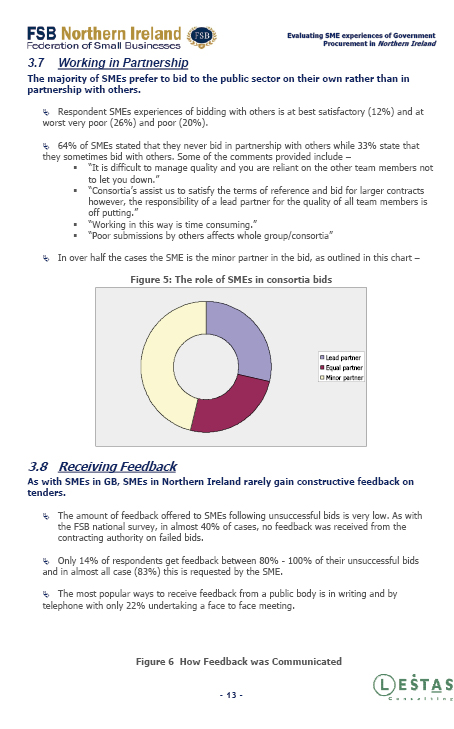
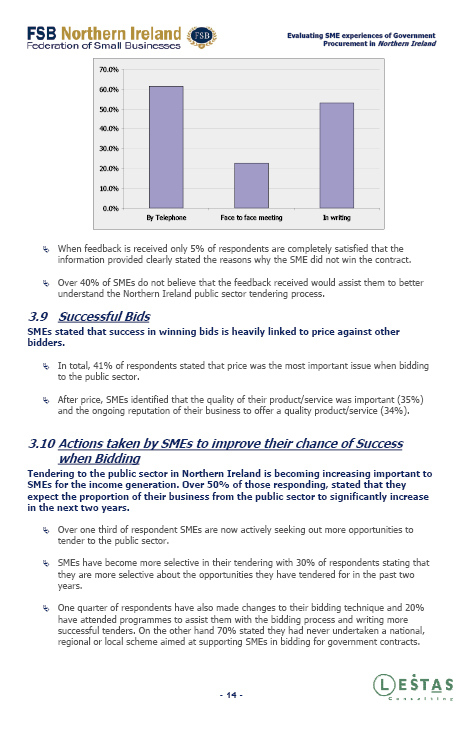
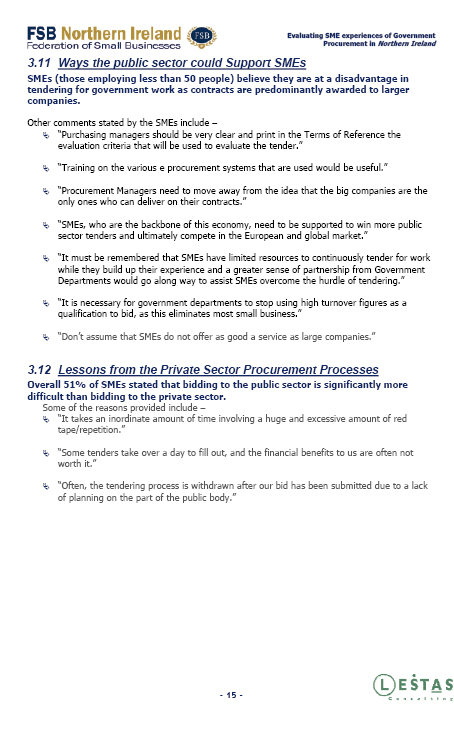
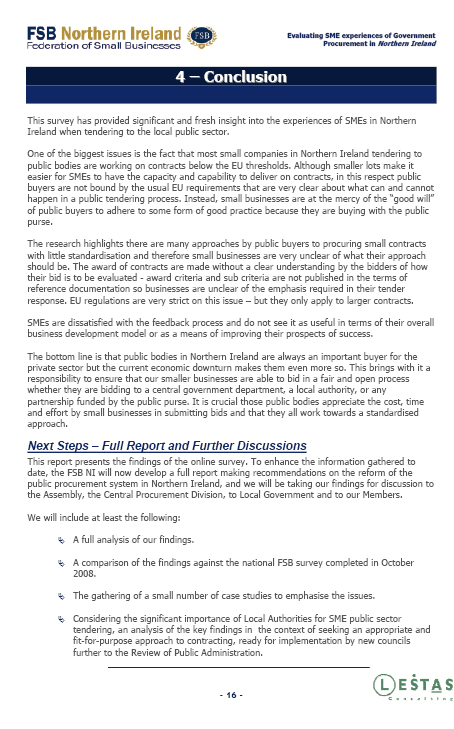
Chartered Institute of Purchasing Supply - NI Procurement Opening Statement
Opening Statement for Evidence to the Northern Ireland Assembly: Commmittee for Finance and Personal: 30 Sept 09
I am here to represent the Chartered Institute of Purchasing and Supply. The Institute and I are grateful to the committee for inviting us to give evidence.
I hope it will be helpful if I say a little about the Institute, which has 50,000 members in 150 countries, was established in 1932 and was awarded a Royal Charter in 1992.
The Chartered Institute of Purchasing and Supply promotes and develops high standards of professional skill, ability and integrity among all those engaged in purchasing and supply chain management. CIPS assists individuals, organisations and the profession as a whole. Our members work across the public, private and voluntary sectors.
We deliver our goals through 4 areas of activity:
- Professional qualifications and training for practitioners, from introductory to graduate level (levels 4 to 7).
- Promotion of excellence within organisations, helping them maintain the highest standards in their purchasing and supply management functions. This includes training staff and accrediting their procurement methods.
- Supporting academic research in our field.
- Representing the interests of our profession, within the wider community, and influencing government and EU policy on procurement.
I joined the CIPS in 1990, achieved membership in 1991 and have been a Fellow since 1998. CIPS have asked me to represent them today because of my public sector procurement experience. I have led the procurement function in a number of public sector organisations, the Department for International Development, Brighton and Hove City Council, the British Council and most recently Birmingham City Council. My interest in the economics of procurement relationships between the public and private sectors has informed my work as Director of Contract Innovation at OGC (2003-4) and my PhD (completed in 2004).
CIPS is aware that SMEs can play a significant role in the supply chain, and we are aware of some barriers to their participation. These barriers have included economies of scale, standardisation drives, and the importance of security of supply. There are also perceived barriers of bureaucracy, lack of understanding of SMEs and complexity of processes. We recognise the importance of the EU rules on Public Procurement and also recognise that these rules can make for a process that may seem daunting to the newcomer. EU countries in total command public expenditure spend of 175bn Euros, a vast market much of which is available to many SMEs once they have mastered EU rules. By contrast the NI public sector spend is of the order of £2.2bn
CIPS supports initiatives that enable SMEs to contract with the public sector, and through training and influencing, encourages CIPS members to facilitate SME participation in public procurement. We consider it essential that trained, professional personnel exercise the procurement role in public sector organisations. The 7 key points we make to our members, and others, are:
1. Make contracting information available and accessible to SMEs, especially for contracts that fall below the EU limit, including through portals such as Supply2gov, and that being developed here by the Central Procurement Directorate.
2. Encourage prime or first tier suppliers to work with SMEs, as BT, EDS and others are doing. Also encourage partnership mechanisms for groups of SMEs to collaborate on public sector contracting.
3. Keep guidance clear, avoid unnecessary jargon and acronyms and make it easy to find.
4. Train local SMEs so they can bid under EU rules, not just for local contracts, but across Europe.
5. Make sure all contract requirements are all necessary to the delivery of the contract.
6. Communicate effectively with all would be bidders and then bidders, throughout the procurement process.
7. Give open, constructive and educational feedback to unsuccessful bidders
The Institute recognises the complexity of Public Sector procurement, which seeks to achieve three different set of objectives. These may be thought of as three arrows, all within a circle, but pointed in three different directions, rather like the Mercedes symbol.
- First, there is the importance of getting best value for taxpayers’ money.
- Secondly, there is a need to transparency, and regulatory compliance, including EU rules
- Thirdly there are policy requirement, including the SME agenda and other economic, social and environmental requirements.
These three objectives do not point in the same direction for all procurements. It is a difficult and challenging task to achieve the best possible outcome. CIPS professional training helps our members to relish the challenges of public sector procurement, and of achieving those three set of objectives.
Dr Glynis Davies FCIPS
28-9-09
Correspondence from Committee for Enterprise, Trade & Investment
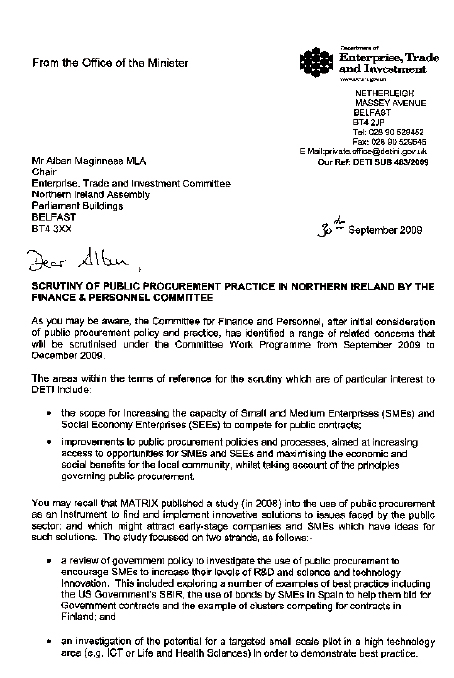
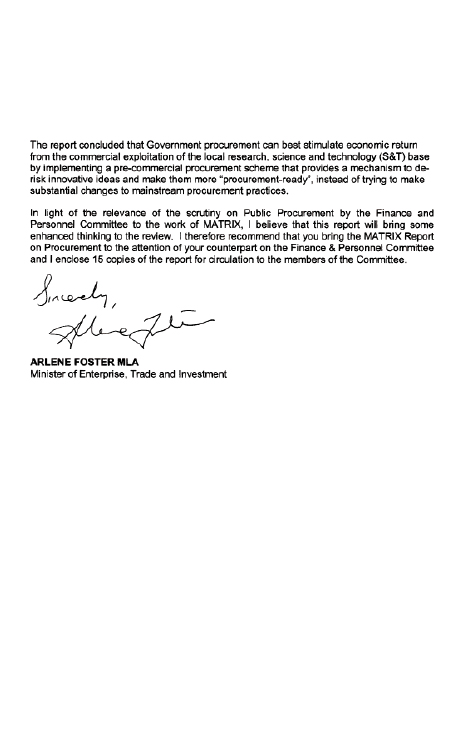
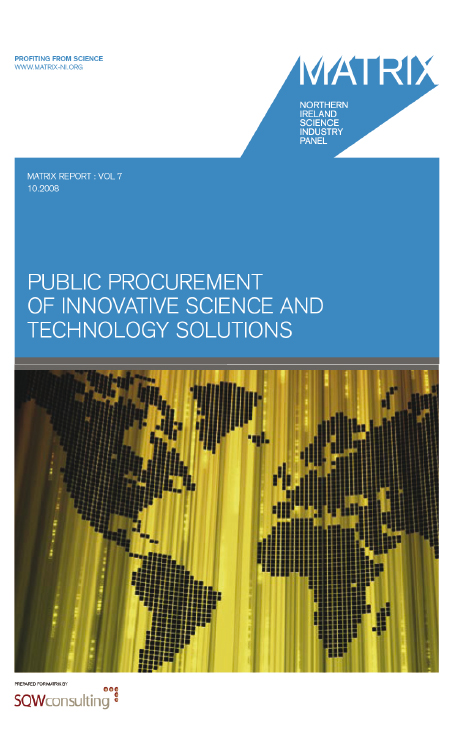

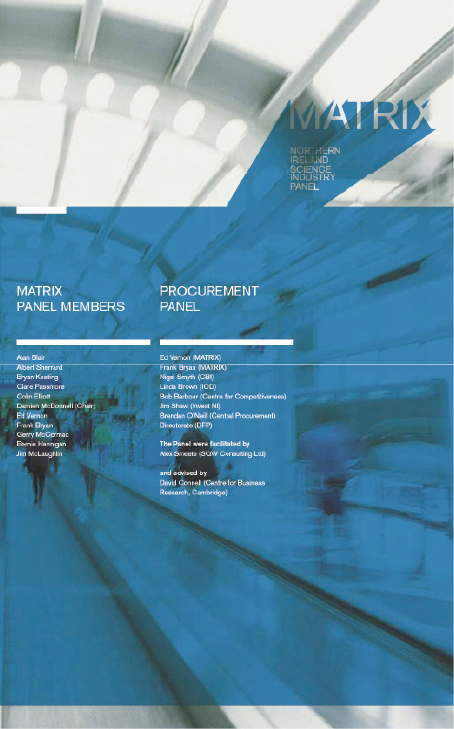
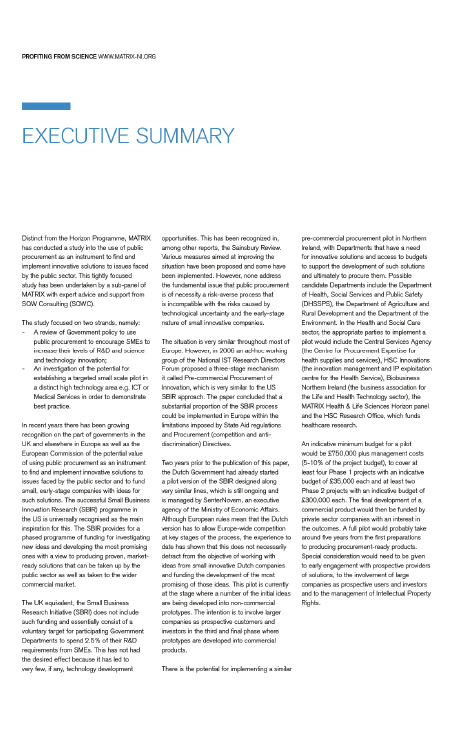
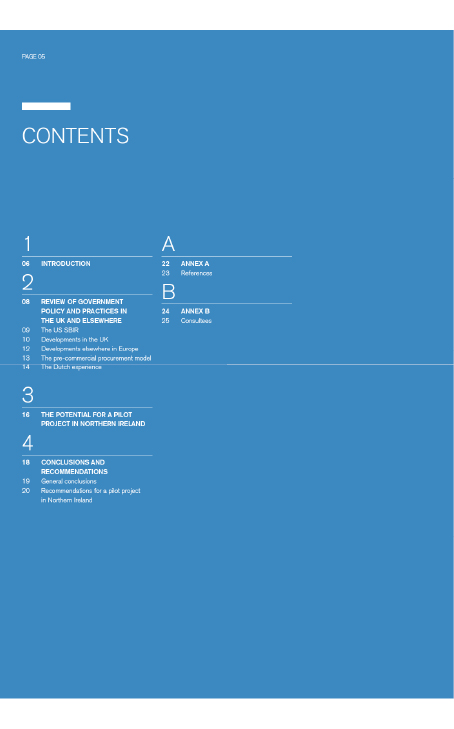

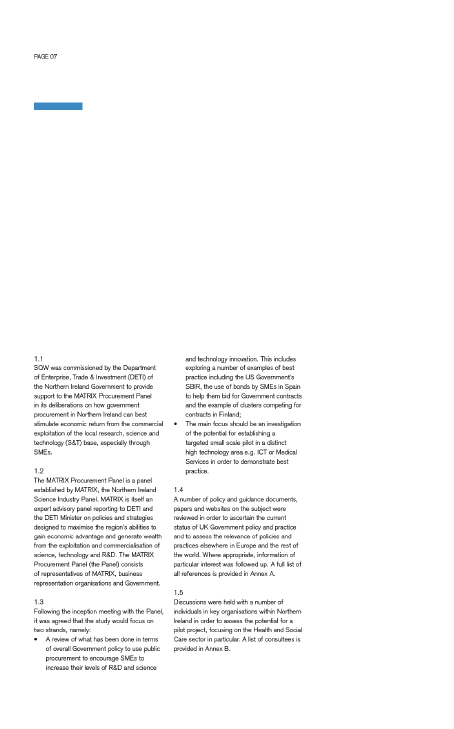
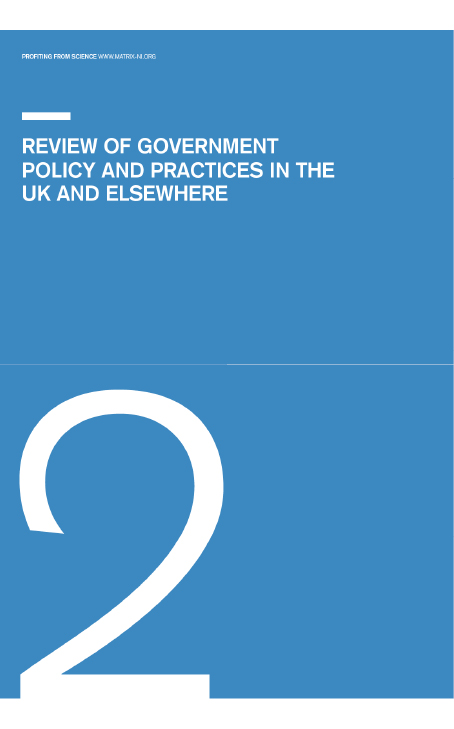
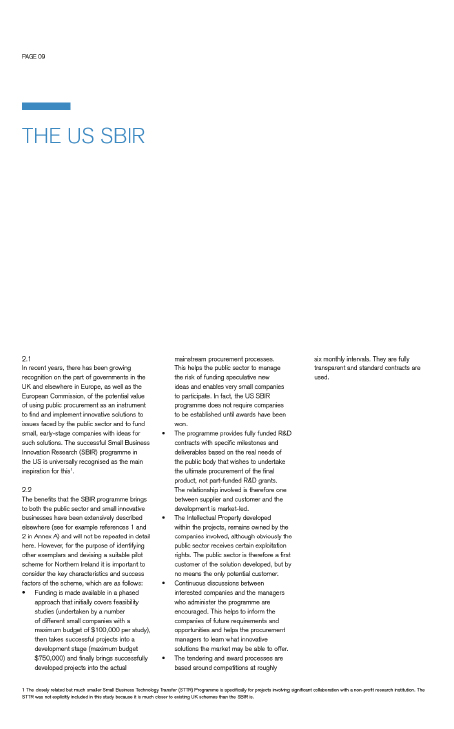
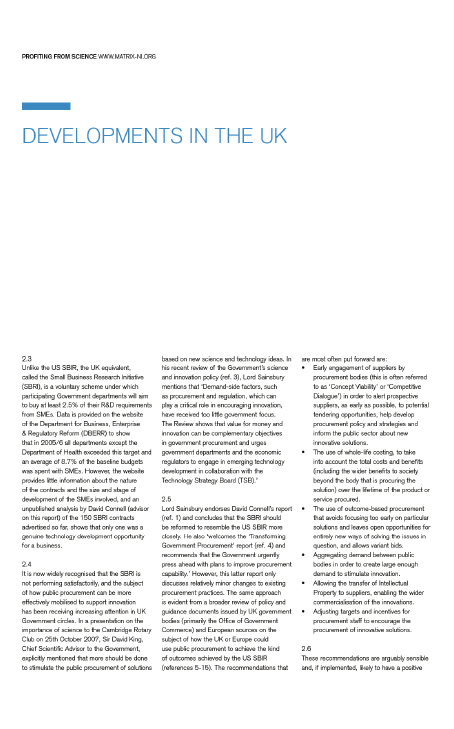

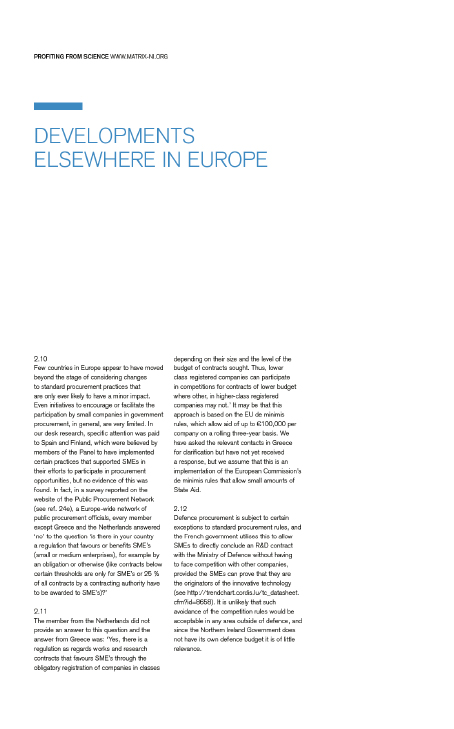
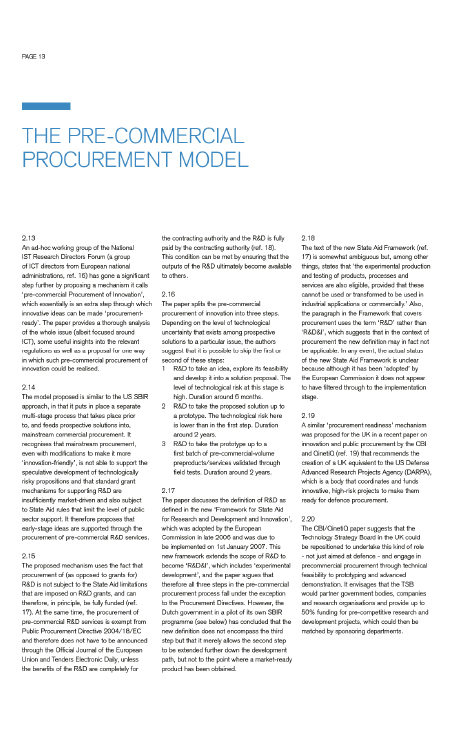
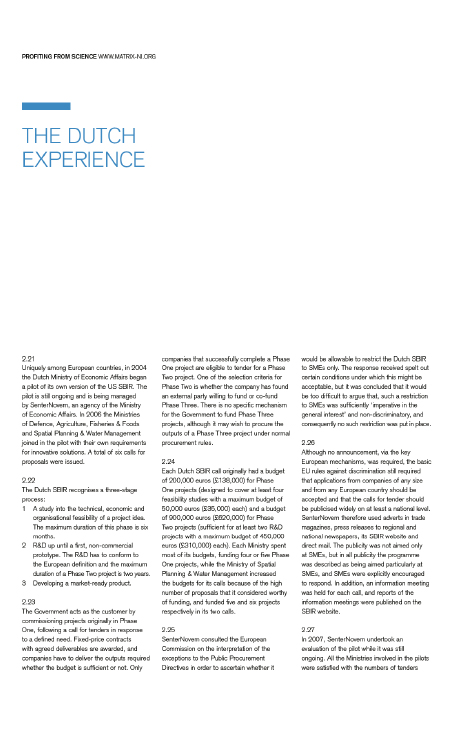


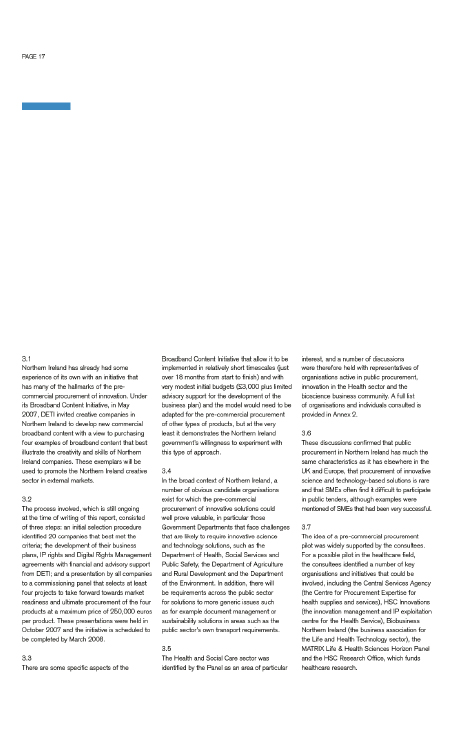

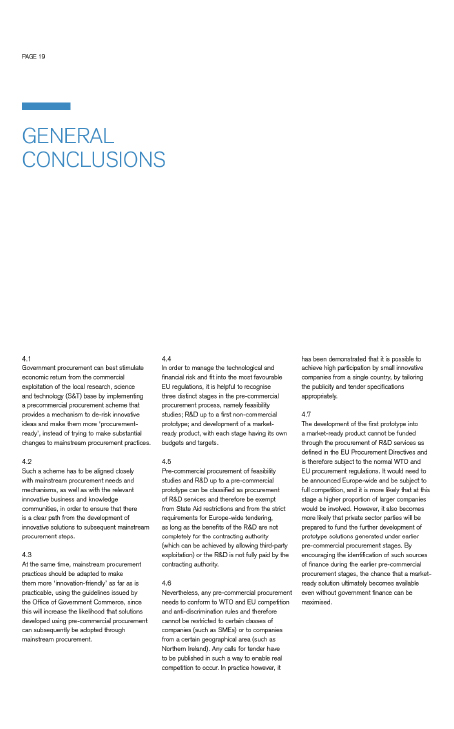
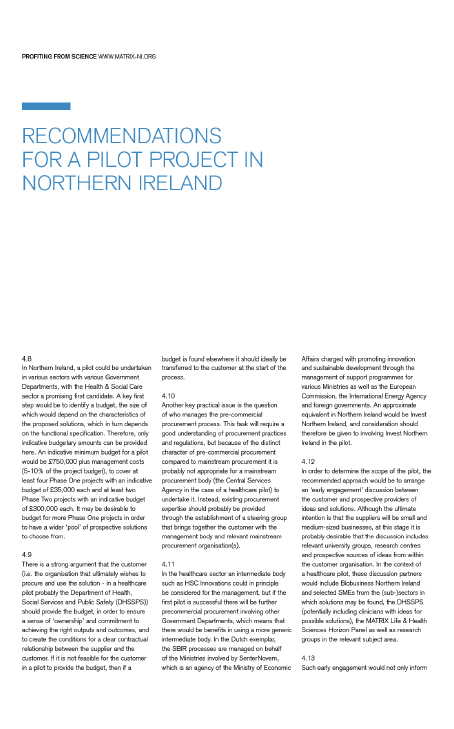


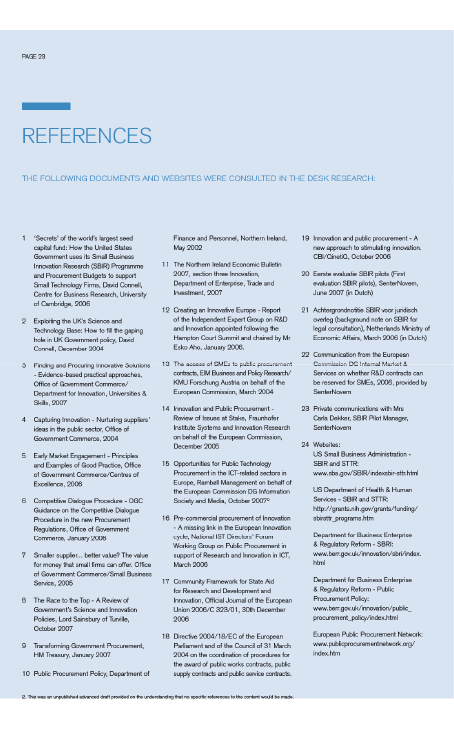

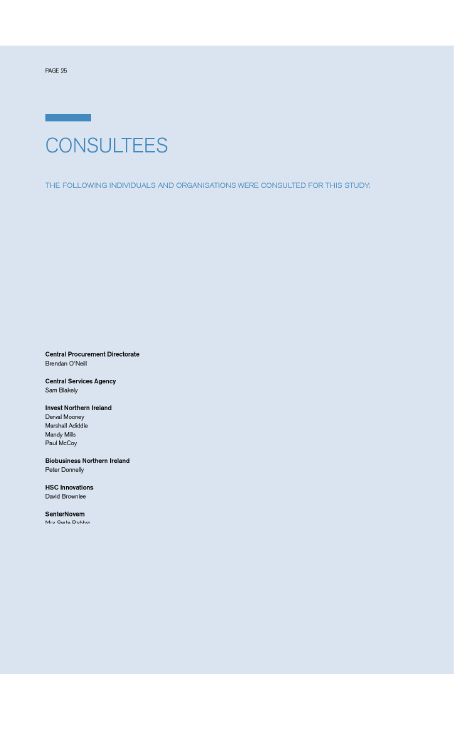
Correspondence from Public Accounts Committee
From the Permanent Secretary
Stephen Peover
Rathgael House
Balloo Road
BANGOR
BT19 7NA
Tel No: 028 91277601
Fax No: 028 9185 8184
E-mail: stephen.peover@dfpni.gov.uk
Mr Paul Maskey
Chairman
Public Accounts Committee
Room 371
Parliament Buildings
BELFAST
BT4 3XX 6 October 2009
Dear Paul
PAC COMPOSITE REPORTS
Thank you for your letter of 16 September.
I attach answers to the questions asked and a summary which was provided to the Finance and Personnel Committee which has undertaken its own review of legal challenges on procurement.
Yours sincerely

Stephen Peover
Partenaire Challenge against the Department of Finance and Personnel (DFP)
Q1. Paragraph 6.3.6:
In the legal challenge taken against the Department by Partenaire in the Workplace 2010 Project, the legal costs seem to be very high. Please outline the respective roles of the Programme’s legal advisors, the Department Solicitors Office and Legal Council and the breakdown of costs between them.
The total legal costs in respect of the Partenaire legal challenge were £1.018m. The breakdown of these costs is as follows:
- Legal Advisers: £907k
- Departmental Solicitors Office: £52k
- Barristers: £59k
It was decided that the programme’s London-based legal advisors were best placed to lead the defence to the challenge due to the complex nature of the procurement. This work included collecting and preparing evidence statements, managing the collection and administration of detailed information to be exchanged with the plaintiff as part of the court process, obtaining specialist procurement-related legal advice and support in preparing for the judicial review hearing, briefing barristers and attending the hearings.
The Departmental Solicitor’s Office was responsible for overseeing the Department’s preparation of its defence and all interaction with the local courts.
The barrister costs were related to both preparation for, and attendance at, the judicial review hearing.
Q2. Paragraph 6.3.12
Did the Department of Finance and Personnel take legal advice in deciding to establish a framework agreement for Integrated Supply Teams to design and build a range of projects across the wider public sector? If so, was this advice in-house or external and how much did it cost?
Framework agreements are provided for under the EU Directives on public procurement and in the UK Public Contracts Regulations 2006 that implement the EU Directives.
OGC produced a guidance note on framework agreements for procurement practitioners. This guidance was developed with input from legal advisors at OGC. In addition, the EU Commission has issued an Explanatory Note on framework agreements.
Framework agreements are widely used in the public sector in GB and NI and CPD has successfully established a number of these. In the light of the above, CPD did not take specific legal advice in deciding to establish a framework agreement for Integrated Supply Teams.
Q3. Paragraph 6.3.20
During the process to appoint firms to a framework agreement for the design and construction, or construction only, of schools or other education projects in Northern Ireland, 11 clarification notes were issued to firms. What were the subjects of these clarification notes?
Did Central Procurement Directorate take legal advice on the content of these notes, particularly note 4 and, if so, was the advice in-house or external and how much did it cost?
A summary of the contents of the 11 clarification notes is set out in the Annex below.
The Department of Education established a team to take forward the procurement of the framework agreement. This team included external procurement advisers and external legal advisers. Strategic advice was provided to the team by SIB and CPD provided the interface with the construction market place for the procurement process.
External advisers were responsible for drafting the clarification notes. As legal advisers were available within the DE team, CPD did not take additional legal advice on the clarification notes.
Q4. Paragraph 6.3.25
The C&AG’s report makes the point that Government, by its nature, is likely to be involved in a wide range of potential litigation. This seems to be particularly the case on contract issues. What steps have been taken to ensure that Government has access to good quality, cost effective legal advice in this area?
On contract issues, CPD relies on the Departmental Solicitors Office (DSO) for legal advice. DSO are the in-house legal advisers to NI Government departments and are familiar with the public law setting matters like contract and procurement law. Their budget and costs are subject to public accounting rules. Although DSO is normally the primary ‘port of call’ for legal advice by NI government departments it is normal, either for reasons of the specialist skills required or the manpower needed, or a combination of these factors, to appoint external legal advisers for larger scale projects. The appointment of external legal advisers would normally be by way of a public procurement exercise to ensure good quality cost effective legal advice is secured.
Q5. Paragraph 6.3.26
Please provide details of any other legal challenges involving public sector contracts which Departments have settled out of court in each of the past five years.
CPD provided information on legal cases to the DFP Committee in April 2009 (please see attached).
It is not possible to provide a definitive list of other legal challenges which have been settled. There are a wide range of contracts in place and disputes over contractual terms and obligations often arise. Many of these are settled in the normal routine of contract management, sometimes incurring costs.
Social Economy Network - Draft Summary Oral Presentation to the Committee of Finance & Personnel
Social Economy Network summary briefing paper to the Committee for Finance & Personnel
The Social Economy Network is a membership organisation (current membership 117) drawing its members from social enterprise initiatives throughout Northern Ireland.
The presenting panel comprises Anne Graham, Director of SEN, Derek Alcorn, Chief Executive, Citizens Advice and Marie Marin, Director, Employers for Childcare - both members of the SEN who have direct working experience of tendering for public contracts.
We intend to focus this presentation on the following three aspects of the DFP Committee’s Inquiry:-
- the extent to which government contracts make provision for social clauses;
- the scope for increasing the capacity of SMEs and SEEs to compete for public contracts; and
- Public procurement processes and procedures.
1. Many Social Economy Enterprises (SEEs) are experienced in delivering high quality public services through SLAs and contracts with Government Departments, their second step agencies and Local Councils. The introduction of the competitive tendering process for such services puts SEEs at a disadvantage and jeopardises the quality of service provision as often those responsible for drawing up the tender specification have little or no understanding of what is required beyond the specific expected outputs and monetary aspects of the service/s and little or no knowledge of SEEs as potential suppliers. The result is tender specifications which take no account of expected outcomes and social value/community benefits. If these aspects are not included in the tender specification there is no mechanism for scoring them in the assessment process.
2. Policy direction is needed to clarify which services should /need to go to competitive tendering. The method of purchasing should be proportionate to the services, commodities and works needed and the method and the determination of the method of purchasing should be made clear to all parties. “If commissioners are convinced that using the third sector is the best way to deliver some public services and that SEEs/Voluntary Organisations are able to deliver added value linked to their particular qualities, then they can positively create a market. (Commissioning Public Services. CIPFA. 2009)
3. Where it is deemed appropriate to purchase services through the public procurement process all aspects, impacts, costs and benefits of what is required re service/s delivery should be considered. Where possible all costs and benefits should be valued in monetary terms however where this is not practicable or cost effective –in the case of social, health, and environmental affects such non-monetary costs and benefits should still be taken into account. The NI practical guide to the Green Book (2003 edition) allows for consideration of non-monetary impacts and impresses the point that they may be crucial to the decisions made. In practice however, this does not happen. The emphasis tends to be narrowly focused on the specific outputs and monetary aspects of the service required.
4. Despite the Programme for Government recognising the valuable role procurement can have in reducing inequalities and promoting social exclusion Social clauses still do not feature in public procurement contracts. The lack of progress on the inclusion of social clauses into the procurement process is one of the most significant problems facing the development of SEEs in Northern Ireland. SEEs operate their businesses in a market place which does not recognise or take account of the added value they create and this puts them at a disadvantage when competing for public sector business. According to a Social Economy Scotland Briefing- the Scottish Government has produced guidance on including social issues in public procurement, including the ability to purchase wider social benefits as part of procurement. The guidance concludes that it is entirely possible to recognise wider social issues within a procurement process, as long as they are part of the primary purpose of the contract and they are incorporated into the specification.
5. Pressure on public bodies to secure efficiencies by aggregating contracts discriminates against small businesses, which includes many social enterprises. Little cognisance is given to the expertise and ability of SEEs (with local knowledge and understanding of needs and how best to address them) to deliver services effectively. It should not be assumed that larger suppliers offer better value for money. Large single contracts are not always the best value for money. There are many advantages of using smaller enterprises which include greater responsiveness to changing needs and ability to “tailor “goods and services. Where single large contracts are considered the preferred option procurement practitioners should consider asking contractors to open a given percentage of the contract sum for sub contracts to small businesses- a practice which is lawful.
- If the goal, as it should be, is to improve and increase the capacity of SEEs to access the £2 billion public procurement marketplace it is essential to address the barriers they face in competing for public contracts. This will be achieved through:
- awareness raising of the SEE sector among public procurement practitioners in both central and local government;
- inclusion of social clauses into tender specifications; investment to develop tendering skills
- the establishment of a public procurement brokerage service for social enterprises.
- the ongoing collection of data on the number of SEEs competing for and securing public sector contracts.
- The development of a commissioning framework for adoption by the new Councils.
Bryson Charitable Group Oral Presentation
I would like to begin our evidence by echoing our Chairman’s welcome to the Committee to Bryson and I think your willingness to meet off-site and consider evidence is a clear signal of your interest and intention to improve public procurement, maximising the benefits to the economy, the tax payer and NI society in general.
Bryson, like other organisations, is drawing to the Committee’s attention the importance of social enterprise to the local economy and the significant potential for it to provide greater value for money, and indeed best value, in the delivery of a broad range of public services.
It is frequently presumed that social enterprise is a recent phenomenon, only now coming to the attention of Government. This is far from the case; enterprise with a social purpose or objectives has been around longer than Bryson, which was founded in 1906. Much of what we now take as common place in society, our hospitals, our schools, etc, were developed from enterprising social action. For example, in Belfast the delivery of clean drinking water into the City was as a result of the Belfast Charitable Society raising public funds for its installation. Voluntarism and indeed enterprising voluntarism has been at the heart of social change on this island and across these islands, for hundreds of years.
If you look in particular at Bryson’s pedigree, over the last 100 years, you will see it littered with enterprise designed to support and encourage Government to evolve policy and service provision that best meets the needs of society, but in particular for those suffering the greatest levels of deprivation.
For example, in the 1920s / 30s Bryson, through funds donated, built model homes in Belfast to demonstrate to the Belfast Corporation, then responsible for social housing provision, what good quality housing should have – electric lighting, hot running water, inside toilets and front and back gardens to encourage people to grow vegetables – all common place in modern housing stock now. Those homes were rented to tenants with rents set based on ability to pay – a very modern concept and ahead of its time - the rent revenues contributed to the upkeep of those properties with profits funding the Charity’s works – social enterprise.
Bryson’s rich heritage is littered with similar examples. In the 1930s the piloting and development of the Poor Man’s Lawyer scheme, a precursor to free legal aid/advice; in the 1940s developing and privately funding the Citizens Advice Bureau network in NI; in the 1960s developing the first adventure playgrounds and community development support programmes; in the 1970s and 80s the first programmes to address fuel poverty in NI and more recently organisations like Home Start, Extra Care and Victims Support, etc are all products of the enterprise that sits within this social goal focused organisation. I don’t emphasis these to suggest that Bryson is different or better, only that the Sector and there are many other examples, has had enterprise at its heart and it is all the more important that public procurement should create the conditions which support the development of the social economy when, for purely practical reasons, it can provide better added value than either the public or the private sectors.
We explained in our written evidence that we have moved from our initial view that the ‘Green Book’ assessment processes was an impediment to a position where we view the ‘Green Book’ process as providing real opportunity to encourage the development of social enterprise, because the ‘Green Book’ process can register and assess a range of benefits delivered, if the need for those benefits is recognised. If those who use it and those who write specifications for bids that will be assessed by it, are better trained and are required to extract maximum value across a fuller range of Government priorities, not only will it be good for the economy but also for social enterprise..
Let me explain:
It is wholly understandable that there should be purchasing rules and a common purchasing system for Government departments in order to ensure that their purchasing is consistent, delivers value for money and treats all perspective suppliers fairly. However, it is our experience that in practice other issues can sometimes have a debilitating effect, stunting the process, for example the desire by people making the purchasing decisions to minimise their risk of subsequently being criticised for their actions or decisions. In essence, it is our view that our procurement process tends more to be designed to procure what can be defended rather than what is best value.
We all understand the need for probity within procurement and the need for making correct decisions, but making decisions correctly is not necessarily the same thing as making the correct decisions. If this sounds complicated, I apologise. To explain: the problem isn’t the Green Book assessment process because all procurement processes should begin with the need to define the objects and the constraints (point 3 in the Green Book’s 10 Key Steps), and this is at the heart of our public procurement problem. It is because, instead of recognising objects (our aims) and constraints (ie why we want something), we specify rigidly what we want in order to exclude ambiguity and defend eventual decisions. As a result, we miss the opportunity to get best value from the process.
It is generally the case that a product or service is bought, not in order to have the product or service itself, but for the benefits that having it is expected to provide – you buy a drill not to have a drill but to be able to put a hole in a wall. However, if the item or service which is purchased is specified very tightly, it can make it easy to see if what is offered meets the specification, but it might mean that an alternative offering, which does not meet the tight specification but which might nevertheless deliver the underlying object and provide additional benefit also, would be rejected. I leave it later for my colleague Brian McGinn to explain from our experiences in procurement using variant bids to encourage innovative thinking, but I am reminded of one particular example, which I think highlights this point:
In 1935 both the army and the air force were concerned with a common problem – detecting enemy aircraft at a greater distance than the existing search lights or sound rangers could do. Each sought to procure a solution from the scientific establishment, but each viewed the problem in a different way. The army specified search lights that could pick up aircraft 10,000 feet higher than currently available and sound rangers that could pick up aircraft 10 miles further than the current limit and in due course they got what they asked for – stronger search lights and better sound rangers. In contrast the air force defined their object less tightly but more accurately: to detect and track aircraft from as great a distance as possible – they got radar. I think the point is clear; I don’t think it needs laboured, we need intelligent procurement processes to secure, for the tax payer, best value and to include in that consideration, meeting broader ranges of Governments objectives through the inclusion of social clauses.
It is understood that Government departments purchase goods and services to enable them to achieve their aims and objectives. But what if, as well as meeting their prime objective, what is sought could also help to achieve other Government objectives, either for the same department or for another department or all departments. This is the essence of intelligent procurement ie tenders should look for the widest possible community/social benefits to be taken into consideration, if it can clearly be shown that the benefit assists Government to meet one or more of its aims, even if that aim is not the primary subject of the contract in question. For example, when we commit to infrastructural spend we think of roads, schools, hospitals, sewage works etc. More recently there has been talk about a ‘Green New Deal’ for NI, such a programme would, if procured by DETI or DSD, address the energy efficiency improvement of homes, embed generation within those homes, fit smarter metering in homes, fit energy/water saving devices to homes. Such a programme would also create substantial local employment, sourcing potential employees from people who are currently on the unemployed register, contracting installations through small local firms, given the nature of the work, reduce carbon emissions, enhance our security of supply and diminishing our dependence on fossil fuels and contribute to eradicating fuel poverty – that’s the challenge that needs to be addressed, developing a modern intelligent public procurement process, which seeks to maximise the socio-economic benefits for NI.
My final point, before I hand over to my colleague Brian McGinn, is concerned with procurement being an important tool for stimulating the NI economy. We mentioned in our written submission the suggestion that the review of public administration (RPA) is designed to deliver leaner Government and that we believe that RPA must put in place a presumption on Government departments, but in particularly on local Councils, to outsource for service development and service provision, using its purchasing power to provide opportunity for all sectors of the economy, but in particular social enterprise. We are concerned that in the new social economy enterprise strategy, currently in consultation, suggests a substantive role for Councils in the development of social enterprise. Our experience suggests that Councils are gearing up to enlarge their staffing complement to provide support for the development of social enterprise, more staff, more advice and more business plan producers. This misses the point! We are not convinced that the Councils have the skills or expertise to develop social enterprise, but what they do have is spending power and it is our view that the thrust of the draft strategy should focus on the procurement role and procurement skills within local authorities to enable them to use their spend to create opportunity, which not only would advantage social enterprise but indeed Private Sector enterprise and as such hold closer to the intention of RPA: leaner Government looking towards the added value it gets from its spend as a commissioner of services, rather than a deliverer of services.
In recent years Bryson has been quite successful in winning high value contracts through the Government procurement process, for example, DEL prime contractor award; the Warm Homes Programme management award and a significant number of recycling contracts with individual Councils and Council waste management consortia. While we have been successful, it hasn’t been easy and I am going to ask Brian to take you through some of the key issues we believe we should draw to your attention which result from our engagement in these processes.
Brian McGinn
Bryson has purposefully sought to increase its contractual income to allow us to gain independence, build reserve balance sheet strength, provide for reinvestment in the Charity and allow for long term planning. To this extent we now have 89% of our total income as contractual with the remaining 11% coming from grants and donations. 10 years ago only 40% was received from contracts. We now have contract periods of 1 to 8 years. Our longer term contracts are secured through our training company, North City Training – £2M pa and Bryson Recycling £5.6M + £3.6M in shared sales, unfortunately Health Trusts (@ £2.7M) continue to offer contracts of only 1 year duration, although we believe and hope this will soon change. In the coming year we expect our contractual income to rise to 95% as we have been successful in winning the Warm Homes tender procured by DSD/NIHE (a 5 year, £10M pa contract).
All these contracts are with some form of Government – Councils, Health Trusts or Government Departments. Many have been secured through European Journal Tender and we have no fear of this process. We believe we can work closely in partnership with Government bodies while maintaining the contractor relationship.
It is this relationship to which John has previously referred and the best example of this working in practice is with the ‘Materials Recycling Facility’ contract with arc21. The original tender asked for price for treatment of mixed waste only with tonnage from 13M to 50M tonnes per annum, for a period of 8 and 15 years. Bryson offered the compliant cost bid for each term, plus 4 other options and also a 20 year model. Our variant options introduced ‘source separated’ waste collections into the bid plus the option to share risk and profit on the material sales price. The successful bid accepted was for 8 years plus a potential 7 year extension with material sales price share. This allows the value of material sales to be split 50:50 between Bryson and arc21, together with Bryson’s ability to provide high quality output materials and secure long term price deals, both Bryson and arc21 have profited immensely. We continue to work in partnership with arc21 and recently allowed the contact to expand to include source separated materials, while also reducing fines to Councils for delivery of contaminated stock. We have similar material sales price share deals in place with Councils independently for collection of materials.
It is worth noting that while grants have an important role to play, survival on grants does not allow profits and therefore growth of reserves with associated balance sheet strength. While Bryson has been able to grow, with turnover to soon reach £30M+ and reserves of £7M, others may not be in the same position and may be precluded from bidding for tenders due to size and lack of balance sheet strength.
It is important that Government recognize the contribution that can be made by Social Enterprises such as Bryson and the added values that can brought to local Society.
Social Economy Network - Special Contracts Arrangements
22nd October 2009
Dear Shane,
Re: Public Procurement Inquiry: Evidence Session
I wish to thank the Committee for Finance and Personnel for the opportunity to present oral evidence into the inquiry on public procurement.
Special Contracts Arrangements (SCA) only applies to supported factories/businesses - defined as a company where more than 50% of the workers have a disability. Ulster Supported Employment Ltd is the only company that holds this status in Northern Ireland and they are registered on the UK list of Social Firms. Public contracts can be reserved under SCA for supported firms. Contracts cannot be reserved for a specific organisation but are open to supported firms from anywhere in the EU.
Where supported firms have tendered for general contracts and are equal to the successful tender in everything but price, the SCA allows the public body to return the tender to the supported firm for a revision of costs – “offer back system". They are given no information about the costs of the competing company.
I have attached some background information on the Special Contracts Arrangements and also a copy of a letter, issued by Jobcentre Plus (the company with responsibility for registering supported firms) to registered supported firms for their use with public bodies and Government buyers. USEL has issued this letter with tender submissions. There is little or no knowledge or understanding about the SCA as on one occasion the letter was returned with a note stating that it had been sent in error and on other occasions Government bodies stated that they did not take part in the scheme.
I trust that this information provides the clarification needed.
Yours Sincerely,

Special Contracts Arrangements
Background
The “ Special Contracts Arrangements" (SCA) was introduced in November 1994 to replace the Priority Suppliers Scheme (PSS). The SCA was developed to assist eligible employers of severely disabled peole in the European Economic Area (EEA) to compete for contracts from UK Government departments and agencies. The scheme is managed by Jobcentre Plus, Disability Support Division.
For a company to apply to joion the register they must be a non-profit distributing company that has at least 50% of the workforece registered as serverely disabled.
The company’s disabled employeed must make a genuine contribution to the business; they should not be there simply for therapeutic activities.
Disabled staff must be paid the equivalent wage as a non-disabled colleague.
The SCA involves guidance to Government buyers to give special consideration to buying products and services from registered suppliers. The scheme also involveds a system known as “offer back" under which a registered supplier whose tender is unacceptable on price alone (i.e. quality, v olume and delivery are acceptable) should be given an opportunity to submit a revised tender for part or all of a contract.
If on such “offer back" the registered supplier is able to match the best offer, its revised tender should be accepted.
The Scheme relates only to contracts that are not suitable to EC/WTO (World Trade Organisation) rules. The threshold for EC/WTO is £104,435 or £160,670 for some supplies bought by the Ministry of Defence. If a contract is subject to those EC/WTO rules, the SCA does not apply, even if a registrant under the arrangements competes for and wins the contract.
There are approximately 139 organisations registered under SCA
Next Steps
If you are interested in joining the SCA register you must make sure your company satisfies the eligibility criteria below:
- It is established within the European Economic Area (which includes the EC);
- It is required by its constitution to apply its profits or income in promoting its objects and prohibited from paying a dividend to members, shareholders or equivalent proprietor.
Job Centre Plus
We are registered under the Special Contracts Arrangements (SCA) scheme, which assists eligible employers of severely disabled people to compete for business from central and local UK Government buyers.
As a Government buyer, you can:
- Award contracts to a Special Contracts Arrangements registered supplier if their tender is no higher than any other tender
- Give an SCA supplier the opportunity to submit a revised offer (an “offer back") if all factors except their tender price are acceptable, and
- Accept the revised SCA supplier’s tender if they can then match the previous best offer.
Special Contracts Arrangements apply to ALL Government buyers, including NHS Trust and Local Authority buyers. They only apply to contracts below the relevant EC/GATT thresholds.
USE OF SPECIAL CONTRACTS ARRANGEMENTS IS CONSISTENT WITH CURRENT PUBLIC PROCUREMENT GUIDELINES AND EC LAW.
If you use Special Contracts Arrangements, you should contact Jobcentre Plus to register your Department/Agency details. More information on Special Contracts Arrangements is available from:
Jobcentre Plus
Level 3, Rockingham House
West Street
Sheffield
S1 4ER
Telephone 0114 259 6394
Correspondence from Committee for the Environment
Committee for the Environment
Room 245
Parliament Buildings
Tel: +44 (0)28 9052 1347
Fax: +44 (0)28 9052 1795
Fax: +44 (0)28 9052 1083
To: Shane McAteer
Clerk to the Finance and Personnel Committee
From: Alex McGarel
Clerk to the Committee for the Environment
Date: 26 October 2009
Subject: Procurement methods used by the Department of the Environment’s Local Government Division to appoint consultants or agencies
1. At its meeting on 15 October the Environment Committee considered a Departmental reply on procurement methods used by its Local Government Division to appoint consultants or agencies.
2. Members were concerned that while the information provided by the Department gave them a factual account of the procedures that are undertaken, it failed to indicate how the more subjective decisions of the process are taken. For example, the parameters on which a judgement is made by the Department following the receipt of quotations or tenders.
3. The Committee is concerned that there is a perception that the same large firms are selected on a regular basis while newer/smaller firms appear to be less successful when tendering and the Committee has asked the Department for reasons why this might the case.
4. The Committee was advised that the Finance and Personnel Committee is in the process of a review into procurement across government. It asked me to forward members’ concerns on this issue to you and to ask that you keep the Environment Committee informed of the progress of the inquiry.
Alex McGarel
Clerk
Committee for the Environment
Information on Gauge Social Return on Investment Tool
NOW are a company limited by guarantee with charitable status set up in 2001 to provide quality training and employment services for people with learning difficulties in North and West Belfast . We support over 200 individuals per year who are often disadvantaged get the job they want and keep it. NOW also operate a successful social enterprise business called Loaf Catering which consists of three Cafes and an outside catering delivery service for the Great Belfast area. We are an award winning organisations with a very clear mission and we can see that our work really does make an impact on the lives of local people and their families.
NOW have been involved with the model of Social Return on Investment since 2005 and have found it an extremely useful tool to measure the difference our work makes to people’s lives whilst also helping us hone and develop our business practices. With initial support through DSD Modernization Fund we have invested in embedding the model within the organisation and now annually measure and report on the impact our work has on our stakeholders, especially local people with learning difficulties and their carers.
Over the past 2 year we have been watching the development of the model in England and Scotland with great interest and have been amazed at the buy in from Government there. The SROI Network has done excellent work to raise awareness of the model and has worked with the Cabinet Office and Commissioners to understand the value of SROI as a tool for measuring the added value of engaging/contracting with our sector in service delivery. In a Northern Ireland context it has been somewhat more difficult to see any uptake from local Government in relation to the SROI Model and recent discussions with key stakeholders has highlighted a nervousness and lack of clarity around the subject of social outcomes especially in relation to procurement or Government contracting. We are keen to push this debate forward and encourage further discussion as to how social enterprises and SME’s can use models such as SROI to demonstrate how their businesses can deliver a professional, cost effective service within contracts whilst having a positive impact on the lives of local people in need.
In 2008 NOW decided to develop Gauge a social enterprise business designed to help organisations understand, measure and communicate their value. We believe passionately that as the economic and political climate in NI is changing there is an urgent need for the SME and SEE sector to regroup and develop new skills which mean that we are very clear about how the work we do changes lives. It is essential that we are able to demonstrate to commissioners how our work delivers a high impact whilst also being good value for money.
Gauge can provide two very valuable services:
- Develop the capacity of the sector to understand, measure and communicate their value
- Engage and educate local commissioners and procurers to increase opportunities to contract with the SEE sector whilst also being able to measure and report on social outcomes.
Our business launched in September 2009 and we are currently promoting our service to the public, private and third sectors. More information about NOW and our social enterprises can be found at:
Gauge - www.gaugeni.co.uk
NOW – www.nowproject.co.uk
Loaf Catering – www.loafcatering.com
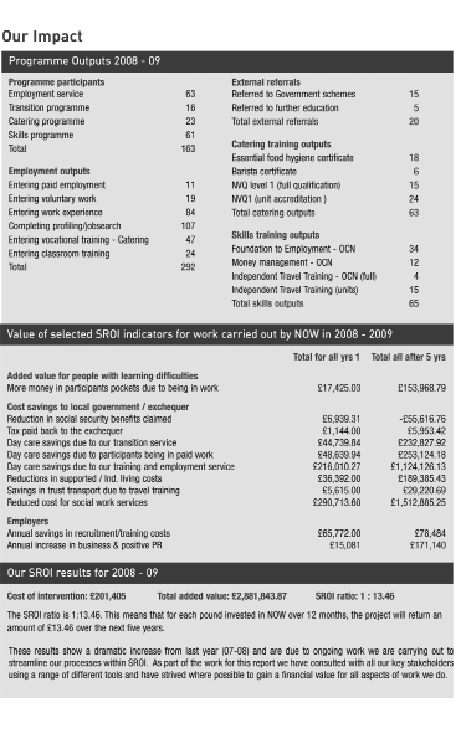
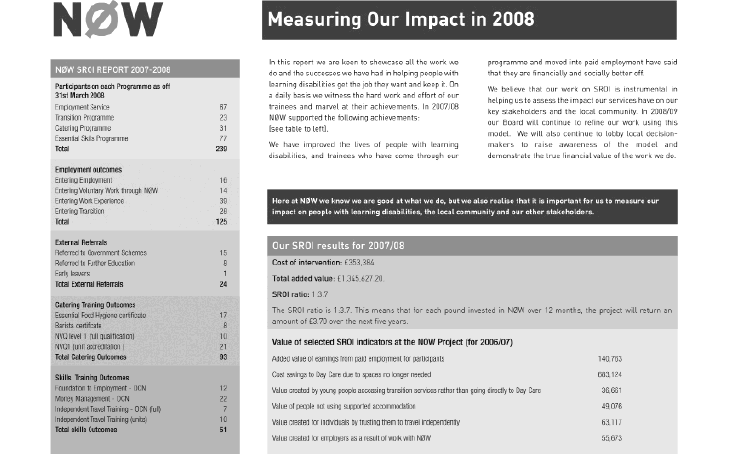
_fmt.jpeg)
_fmt.jpeg)
_fmt.jpeg)
_fmt.jpeg)
_fmt.jpeg)
_fmt.jpeg)
_fmt.jpeg)
_fmt.jpeg)
_fmt.jpeg)
_fmt.jpeg)
_fmt.jpeg)
_fmt.jpeg)
_fmt.jpeg)
Correspondence from Stakeholder
_fmt.jpeg)
_fmt.jpeg)
_fmt.jpeg)
_fmt.jpeg)
_fmt.jpeg)
_fmt.jpeg)
Correspondence from Northern Ireland Local Government Association
Shane McAteer
Committee Clerk
Committee for Finance and Personnel
Room 419
Parliament Buildings
Stormont
Belfast BT4 3XX
Unit 5B
Castlereagh Business Park
478 Castlereagh Road
Belfast BT5 6QB
19th November 2009
Dear Shane,
Thank you for your letter dated 5th November which referred to the committee’s inquiry into Public Procurement Policy and Practice in Northern and providing the opportunity for the Northern Ireland Local Government Association (NILGA) to make a contribution.
Presently NILGA, in conjunction with local councils and supported by the DoE, is in the process of engaging external consultants to undertake an assignment for the development of a procurement strategy for local government within Northern Ireland. NILGA in developing the terms of reference for the assignment identified the following broad requirements for the strategy:-
- the promotion of a culture of collaboration between councils, local and central government and the wider public service;
- the development of a related procurement management system to underpin effective decision making and better support communication across local government and partners;
- an assessment of current procurement arrangements, systems, resources and support in local government to consider the scope for savings and to highlight and extend good working practices;
- a review of the current operational arrangements to make recommendations regarding priorities, resource requirements and governance arrangements; and
- a review of policy and processes, considering best practice regarding quality management, sustainable procurement, risk management and effective contract management.
In agreeing the terms of reference elected members expressed concerns regarding the development of a central procurement strategy and the implications for small and medium enterprises (SME) within the context of their local economy.
NILGA is of the opinion the opportunities to maximise savings can only be achieved through closer collaboration within local government and between local and central government.
A Local Government Procurement Group made up of professionally qualified officers provides a strategic vehicle to highlight and extend examples of good practice throughout the sector. The group has been successful in developing collaborative procurement and increased cooperation between councils.
Newry and Mourne District Council provide an example of best procurement practice. The Council received two Excellence in Public Procurement Awards in 2004 and 2005. Anecdotal evidence suggests the policies and procedures adopted by the council has led to the highest ratio of SME suppliers within local government in Great Britain. Such policies include:
- the procurement process has been on line since 2003. Being web based allows greater openness, competitiveness and increased savings.
- undertaking collaborative procurement with and on behalf of other local authorities.
- adopting a dynamic purchasing approach where tenders are broken down to ensure local SME’s can compete.
- adopting a proactive communications policy removing the barriers hindering SME involvement within the council’s procurement process.
- providing detailed and constructive feedback to any unsuccessful SME ensuring they are better informed when bidding for future tenders.
I hope you find this letter is some use and provides some guidance on the local government procurement policy. NILGA would be prepared to present oral evidence to the committee should this be required.
We also look forward to reading the final report of the committee to help inform the local government approach in the development of the procurement strategy.
Yours sincerely
Sheena Mairs
Director of Improvement
Sellafield Supply Chain
In addition, Sellafield Ltd has the only Supply Chain Ombudsman in the UK nuclear industry; a relatively recent concept, the role was developed in 2005. The current Ombudsman, Zoe Whittle has been in post since April 2009, with almost 20 years experience at Sellafield.
Zoe explains that the role of Supply Chain Ombudsman is multi-faceted – as expected, one vital part of the role is to be an independent, confidential route for the supply chain to voice their concerns and raise any complaints or issues that occur when dealing with Sellafield Ltd. As well as owning the Code of Ethics in Procurement for Sellafield Ltd, if required, formal sanction of the Ombudsman’s complaint investigations are taken at Executive Director level, which emphasises the importance Sellafield Ltd place upon continued development of successful supply chain relationships. ‘In this role, it is reassuring to know that I have the full support of my Commercial Director, Keith Case, should I need it’.
Zoe says ‘in open forum I always invite the supply chain to come to me with any issues, worries or concerns before they escalate into formal complaints. My aim is to work with the supply chain and Sellafield Ltd and wherever possible to reach a professional and amicable solution. Last year Sellafield Ltd spent £737M in the supply chain so it is absolutely vital that our relationship with the supply chain is nurtured. Sometimes Zoe is called upon to liaise between other supply chain members or even between suppliers and other Site Licence Companies ‘they often have no-one else to turn to, so a quick call from me is often all that is required to get that engagement back on track: with no sanctioning authority my role is to aid relationship-building and communication’.
Working closely with the Nuclear Decommissioning Authority [NDA] as well as regional and national supply chain support agencies, no week is the same. Zoe has also established a link between all of the other nuclear Site Licence Companies across the UK and with NDA support, is keen to progress that informal network further ‘after all, we utilise the same supply chain and face the same issues, so there will be generic learning points for all of us’.
Another facet of the role is to act as first point of contact for the supply chain who want to understand how Sellafield Ltd conduct their procurement activities. Sometimes these suppliers are new to the nuclear market, or maybe they are established suppliers seeking to raise their profile within Sellafield Ltd.
‘With my assistant Leanne Ditchburn, we work hard to meet our suppliers, engaging with new potential suppliers as well as organising the twice yearly Supplier Forum [next one 25th November] where the supply chain can engage with Sellafield Ltd as well as each other. We arrange capability demonstrations where the supply chain can market their competencies, and work closely with the Supply Chain Innovation Manager to encourage and identify suppliers of innovative solutions to Sellafield Ltd’s technical challenges. My role is about developing the supply chain, not just being a complaint route’.
I am already in contact with NOF through the NDA National Tier 3, Tier 4 and SME Supply Chain forum, and am engaging with NOF to further explore the synergies between our supply chains. There are exciting times ahead for us all.
For further information, visit www.sellafieldsites.com/suppliers
Duties
- Provides a confidential and unbiased route for the supply chain to raise issues pertaining to Procurement at Sellafield, which will be managed in an open, transparent and equitable manner, making recommendations for improvement where necessary.
- Promotes the Code of Business Ethics and conduct, and helps provide assurance that Sellafield Ltd staff and suppliers act in an ethical manner.
- Acts as the first point of contact for the supply chain and develops improvements to Sellafield Ltd’s supplier communication and engagement, through holding events such as the Supplier Forums, and the Supplier area of the Sellafield Ltd web site.
- Provides an easily accessible “Business Office" at the Sellafield Centre, holding one to one meetings as requested with suppliers, and arranging meetings and presentations to relevant Commercial Managers and site personnel.
- Acts as interface between Sellafield Ltd and various business support and development agencies such as West Lakes Renaissance, West Cumbria development Agency, Cumbria Inward Investment, North West Regional Development Agency, The Welding Institute and other parties such as Copeland and Allerdale Borough Councils, and Cumbria County Council.
- Represents Sellafield Ltd on associated Supply Chain projects at both local and regional levels.
- Encourages new entrants to the market through various means such as publishing the “How to do Business with Sellafield" brochure, holding regular Supplier Forums, and doing presentations at various events for groups such as ONE North East, Scottish Enterprise, UKTi.
- Acts as the front office for Supplier Suggestions and Innovations.
- Looks to develop the Supplier area of the web site to provide useful, relevant and timely information for suppliers.
- The Ombudsman’s Office is located in the Sellafield Centre (previously the Visitors Centre) just outside the Sellafield Site.
If you have any questions about how to do business with Sellafield Ltd, or have any feedback or suggestions regarding the content of this area of our web site, please contact the Ombudsman
External Memberships:
- West Cumbria Business Cluster
- North West Nuclear Decommissioning Supply Chain Project [Regional]
- North West Supply Chain Project [Local]
- Sellafield Contractors Group
- Supply Chain Working Group
- National NDA Forum for Tier 3/Tier 4 and SMEs
Internal Membership:
- Sellafield Supply Chain & Contractors Suggestion and Innovation Scheme Panel
- Decommissioning Supply Chain Forum
Ad-hoc Attendance/Presentations
- Chamber of Commerce
- Furness Enterprise
- Business Link
- Development Agencies
- Relevant Supply Chain Events
- Nuclear Industries Association
- NOF Energy
Etc, etc
_fmt.jpeg)
_fmt.jpeg)
_fmt.jpeg)
_fmt.jpeg)
_fmt.jpeg)
_fmt.jpeg)
_fmt.jpeg)
_fmt.jpeg)
Correspondence from Dr. Stephen Farry
24 November 2009
Shane
Please accept my apologies for the meeting on 25/11.
With the coming consideration of the Committee Report on public procurement, I think that there a number of perspective that it is important that we consider.
I am happy to consider social clauses. Public spending is more than simply about the provisions of goods, facilities and services, but can be used to achieve other public policy outcomes and public goods e.g. sustainable development. Social clauses in procurement/tenders can be seen in this context. Some companies could address some social aspects by themselves through corporate social responsibility clauses, but it is more likely to be only to be bigger companies which would do so.
I think the Committee needs to be careful to avoid recommending anything that could be viewed as being anti-competitive or a breach of the EU Single Market, including trying to tilt the playing field in terms of local companies. Indeed, we should be encouraging local companies to be able to compete better for contracts outside NI.
There is a wider issue over the economic and financial value and efficiency of social clauses. Companies may add to their costs in other to meet the extra compliance asked through the contracts. Therefore overall costs could go up, with a financial premium for the public purse. There is a question whether it is better for government to accept the mark-up costs in public procurement in return for the social gains that could come from social gains, or to invest directly in those issues instead.
We should also be conscious of any potential cost implications that may arise from other recommendations, including from a desire to break-up contracts. These factors may not in themselves be reasons not to recommend, but we should acknowledge any such side-effects.
There is also an issue over how to police the delivery and implementation of social clauses, once contracts are awarded.
Best wishes
Stephen Farry
NILGA - Letter to Committee for Finance and Personnel - Procurement
|
Shane McAteer |
Unit 5B |
19th November 2009
Dear Shane,
Thank you for your letter dated 5th November which referred to the committee’s inquiry into Public Procurement Policy and Practice in Northern and providing the opportunity for the Northern Ireland Local Government Association (NILGA) to make a contribution.
Presently NILGA, in conjunction with local councils and supported by the DoE, is in the process of engaging external consultants to undertake an assignment for the development of a procurement strategy for local government within Northern Ireland. NILGA in developing the terms of reference for the assignment identified the following broad requirements for the strategy:-
- the promotion of a culture of collaboration between councils, local and central government and the wider public service;
- the development of a related procurement management system to underpin effective decision making and better support communication across local government and partners;
- an assessment of current procurement arrangements, systems, resources and support in local government to consider the scope for savings and to highlight and extend good working practices;
- a review of the current operational arrangements to make recommendations regarding priorities, resource requirements and governance arrangements; and
- a review of policy and processes, considering best practice regarding quality management, sustainable procurement, risk management and effective contract management.
In agreeing the terms of reference elected members expressed concerns regarding the development of a central procurement strategy and the implications for small and medium enterprises (SME) within the context of their local economy.
NILGA is of the opinion the opportunities to maximise savings can only be achieved through closer collaboration within local government and between local and central government.
A Local Government Procurement Group made up of professionally qualified officers provides a strategic vehicle to highlight and extend examples of good practice throughout the sector. The group has been successful in developing collaborative procurement and increased cooperation between councils
Newry and Mourne District Council provide an example of best procurement practice. The Council received two Excellence in Public Procurement Awards in 2004 and 2005. Anecdotal evidence suggests the policies and procedures adopted by the council has led to the highest ratio of SME suppliers within local government in Great Britain. Such policies include:
- the procurement process has been on line since 2003. Being web based allows greater openness, competitiveness and increased savings.
- undertaking collaborative procurement with and on behalf of other local authorities.
- adopting a dynamic purchasing approach where tenders are broken down to ensure local SME’s can compete.
- adopting a proactive communications policy removing the barriers hindering SME involvement within the council’s procurement process.
- providing detailed and constructive feedback to any unsuccessful SME ensuring they are better informed when bidding for future tenders.
I hope you find this letter is some use and provides some guidance on the local government procurement policy. NILGA would be prepared to present oral evidence to the committee should this be required.
We also look forward to reading the final report of the committee to help inform the local government approach in the development of the procurement strategy.
Yours sincerely
Sheena Mairs
Director of Improvement
Correspondence from Citizens’ Advice
From: alcornd@citizensadvice.co.uk [mailto:alcornd@citizensadvice.co.uk]
Sent: 02 December 2009 11:35
To: McAteer, Shane
Cc: Jardine, Karen
Subject: DFP Committee inquiry into procurement fro Social Economy organisations
Shane
We gave evidence to the committee’s inquiry in October, as part of the Social Economy network delegation. At the time we had a court case ongoing against DETI and CPD in respect of a further procurement exercise for face to face debt advice which we could not discuss at that stage.
Among the points we made in October were
a) The fact that there is no process of due diligence in the procurement process for Part B procurement contracts and
b) In the absence of an appeal mechanism , there is no remedy except court action.
We withdrew from the court action on an undertaking from Counsel for CPD and DETi that there was a further stage to their procurement process a “ governance review" which they would undertake to ensure that “ the wool has not been pulled over the Department’s eyes"
It is reasonable to ask when this became part of the Department’s procedures, and why it was not undertaken as part of the process of assessing the tenders.
I am attaching the relevant cutting from the Belfast Telegraph and would refer you to the passage marked in bold.
I would be happy to speak to you , the committee, or individual members in more detail about the issues raised, or tot he committee itself. Essentially since Part B contracts are
“ light touch procurement “ there appears to be no due diligence , and no attempt to validate the written claims of suppliers made in tender documents.
Regards
Derek
Derek Alcorn
Chief Executive
Citizens Advice
Tel. 02890 231120
Fax. 02890 236522
E Mail alcornd@citizensadvice.co.uk
Debt advice service funding at risk
Wednesday, 21 October 2009
Belfast telegraph
What are these?
Change font size: A A A
Government funding for a debt advice service in Northern Ireland is at risk, due to a delay in a contract award and a subsequent legal challenge.
The High Court heard yesterday that time was tight for the retention of the public money allocated to the project.
The major Department of Enterprise, Trade and Investment (DETI) contract for face-to-face debt advice to the public was to have taken effect from April this year. However, the timetable slipped to the beginning of this month. It has now been further delayed by a court challenge from the Northern Ireland Citizens Advice Bureau (CAB).
The charity’s bid for the contract was unsuccessful, with DETI opting instead for Advice NI, an umbrella body for a number of groups.
A preliminary hearing in the case was held yesterday, dealing with the CAB’s request for the disclosure of documents from the Government’s tendering process.
The barrister for the department, David McMillen, warned against the full hearing being moved from the set date of October 29. He said the funding for the advice service had to be spent by the end of March next year.
“We are holding on by our finger nails," Mr McMillen said.
“We have to start the contract and expend the monies this financial year. Every day we go on we have one day less of money to spend."
The CAB is requesting documents relating to DETI’s consideration of issues within the contract tendering process, including data protection and quality assurance.
Brett Lockhart QC, representing Citizens Advice, said Advice NI’s list of members included specialist organisations who deal with specific sectors like disability, one-parent families and mental health.
He said, by their nature, such bodies would be restricted on the people they could advise on debt.
Mr McMillen said DETI’s tendering process included a “good governance" stage which had still to take place. It would check data protection and quality assurance matters to “make sure the wool has not been pulled over the Department’s eyes".
The judge hearing the case, Mr Justice Deeny, is to inspect the documents being sought by CAB before ruling next week on the disclosure issues.
The contract could be worth as much as £2.5m if its is extended beyond its initial period.
The case continues.
Read more: http://www.belfasttelegraph.co.uk/news/local-national/debt-advice-service-funding-at-risk-14537225.html#ixzz0UYjnDY70
Next Section
